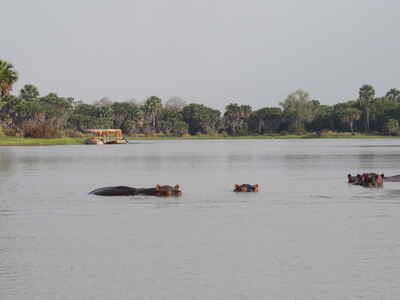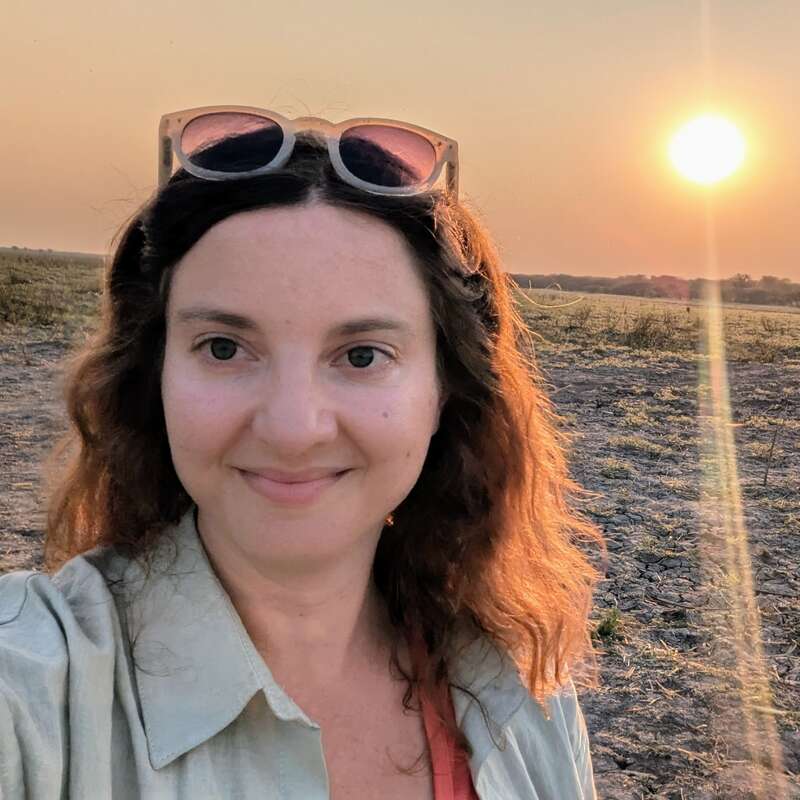About Lake Manze Adventure Camp
Nestled under rustling palms on the lakeshore, the traditional, simple Lake Manze Camp is where wildlife comes to you.
Shaded by doum and barossa palms framing views of tranquil Lake Manze, the camp is dissected by wildlife trails. Giraffe amble past 12 simple tents, watched from private, shaded verandas. Elephant browse cheek by jowl with visitors dining in the main thatched building. Genet cats join guests for a sociable dinner under the stars.
Billed as an adventure camp with an eco-conscious outlook, Lake Manze offers just the safari essentials. The ambience is relaxed, warm and welcoming. Paraffin lamps replace electricity to enhance the balmy night. The tents, with rustic but colourful décor, are uncluttered and comfortable. En-suite bathrooms with flush toilets and hot showers are open air. Meals are simple but tasty, with vegetarian lunches a nod towards balancing the environmental cost of livestock farming.
Experiences concentrate on wildlife encounters and the environment. Safari drives led by a personable guide and a driver take in open plains, lakeside and woodland settings, and are usually limited to four guests. A boat safari is a must, the quiet, solar-powered craft gliding gently by wildlife without startling it.
No frills means a sandy floor in the main area, candlelit rooms and instant coffee, yet the convivial atmosphere and wilderness setting make a visit to Lake Manze a romantic and magical experience.
Our view
Lake Manze Camp is a great option for those wanting a rustic wilderness experience, that's a bit more like real camping, yet with all the basic comforts and good food. Upon each visit to the camp we’ve found the staff and managers to be friendly and efficient, and – because Lake Manze is quite far from any other camps – you rarely see other vehicles while on a drive. Partly hosted, in that the managers often eat with guests, and with a great atmosphere, it's also among the more affordable of the camps in the reserve, and we think it delivers great value for money.
Accommodation
12 tented rooms
Children
Best for aged 10+
Open
1 June to 15 March
Activities

4WD Safari

Birdwatching

Boat trip

Fishing

Guided walking safari

Private activities
Traveller reviews of Lake Manze Adventure Camp
225 real, un-edited reviews from Expert Africa's travellers.
Arrived 22 Oct 2024, 3 nights
"Lake Manze Adventure Camp review"
Overall rating: Excellent
Arrived 14 Sep 2024, 2 nights
"Lake Manze Adventure Camp review"
Overall rating: Excellent
Arrived 30 Jul 2024, 2 nights
"Lake Manze Adventure Camp review"
Overall rating: Excellent
Arrived 20 Feb 2024, 7 nights
"Lake Manze Adventure Camp review"
Overall rating: Excellent
Arrived 15 Sep 2023, 5 nights
"Our stay at Lake Manze was fantastic."
Overall rating: Excellent
Arrived 11 Jun 2023, 3 nights
"Lake Manze Adventure Camp review"
Overall rating: Excellent
Arrived 17 Feb 2023, 4 nights
"Lake Manze Adventure Camp review"
Overall rating: Excellent
Arrived 8 Feb 2023, 4 nights
"Lake Manze Adventure Camp review"
Overall rating: Good
Arrived 5 Sep 2022, 4 nights
"Lake Manze Adventure Camp review"
Overall rating: Excellent
Arrived 30 Aug 2022, 3 nights
"Lake Manze Adventure Camp review"
Overall rating: Excellent
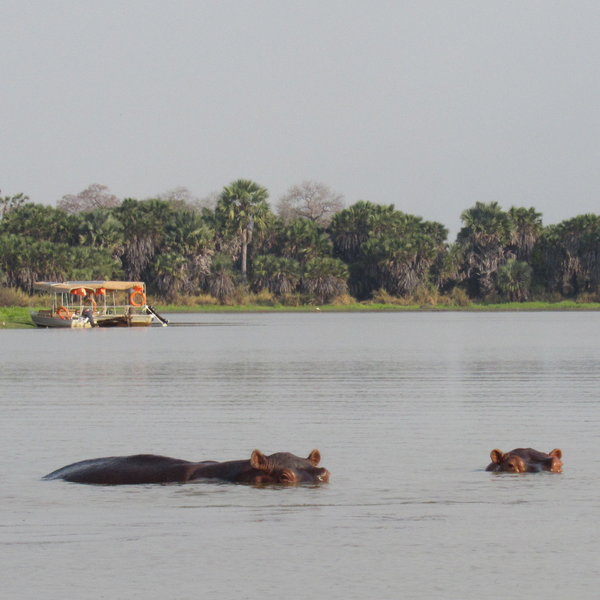
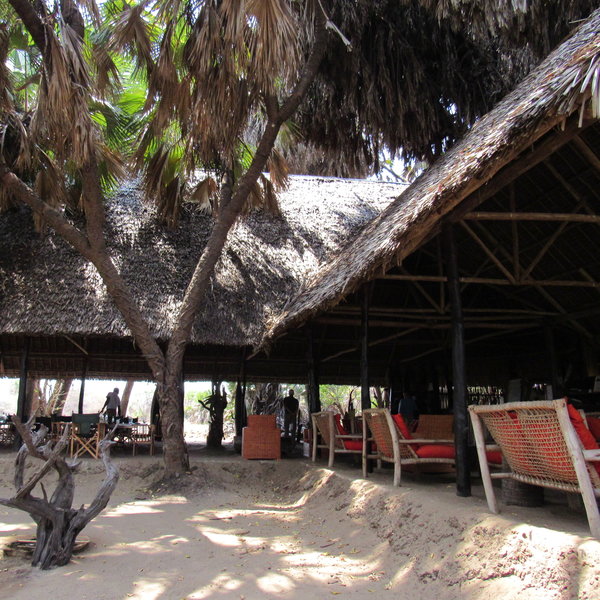
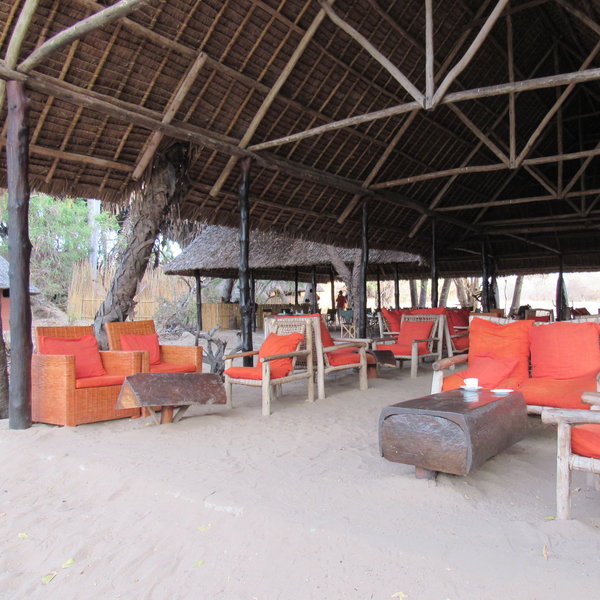
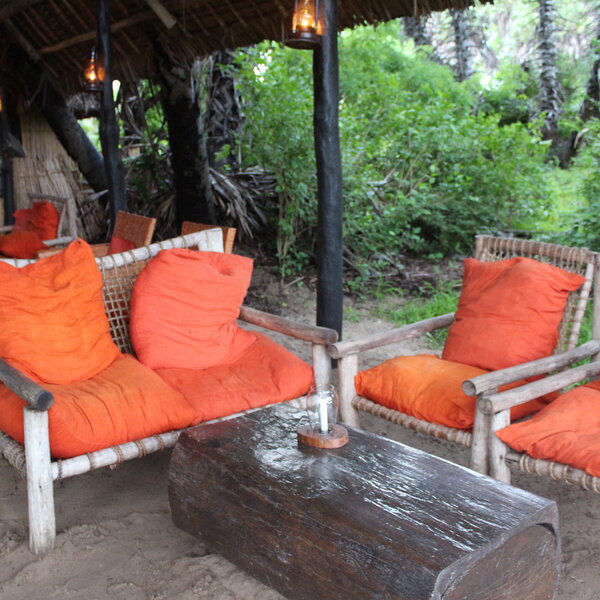
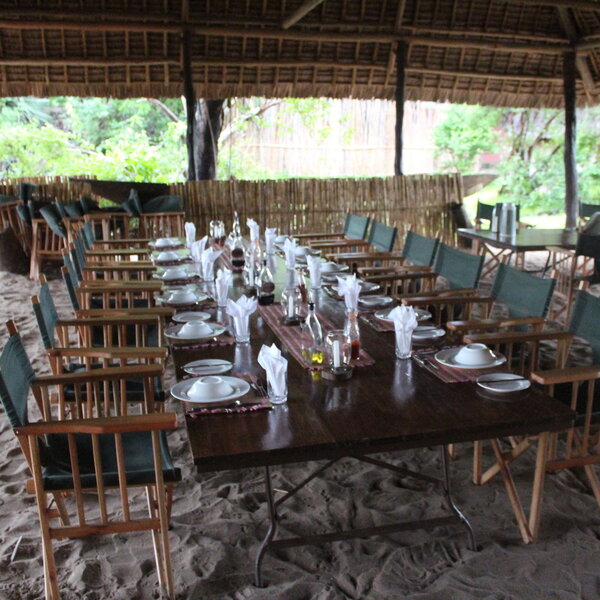
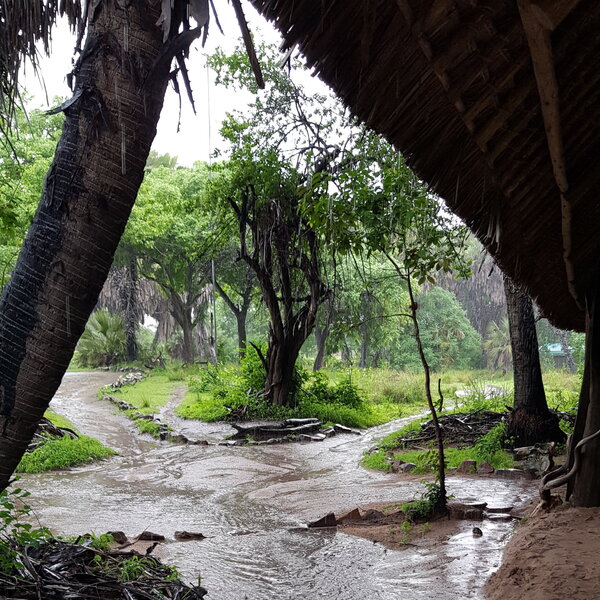
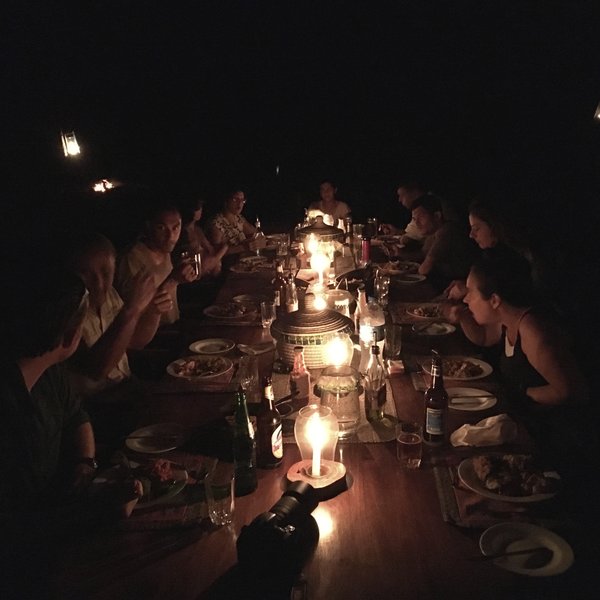
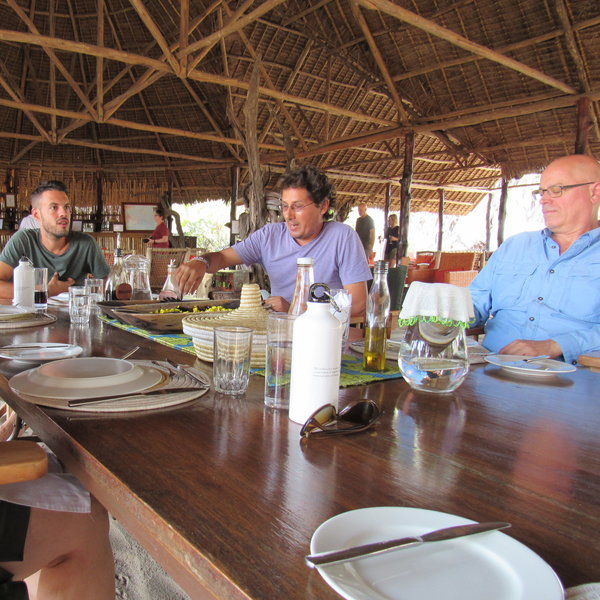
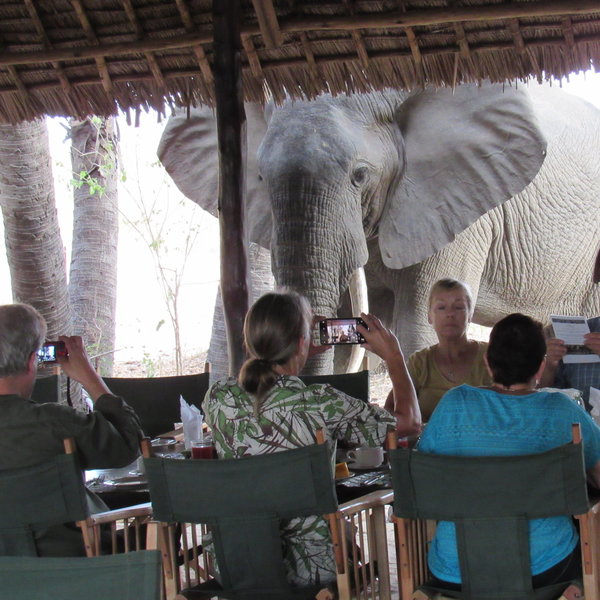
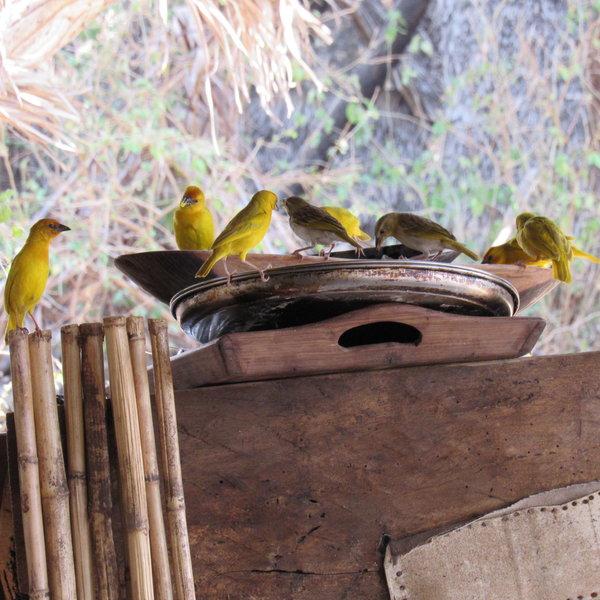
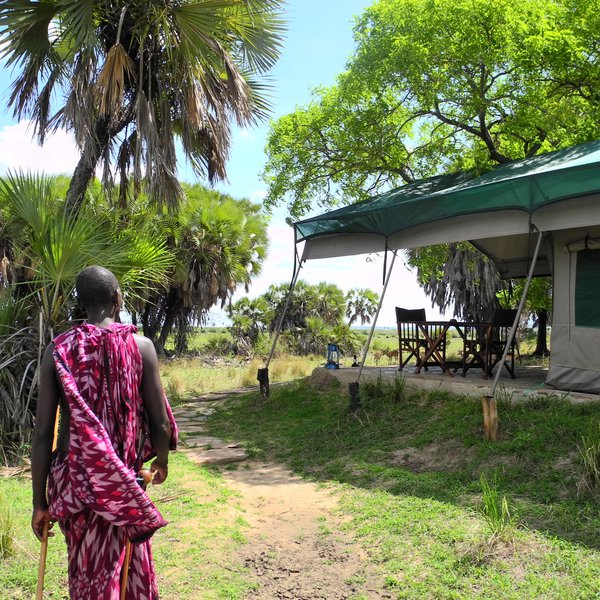
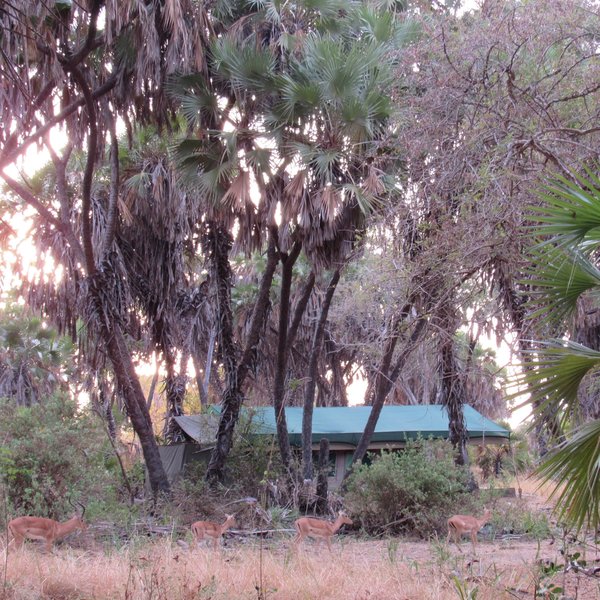
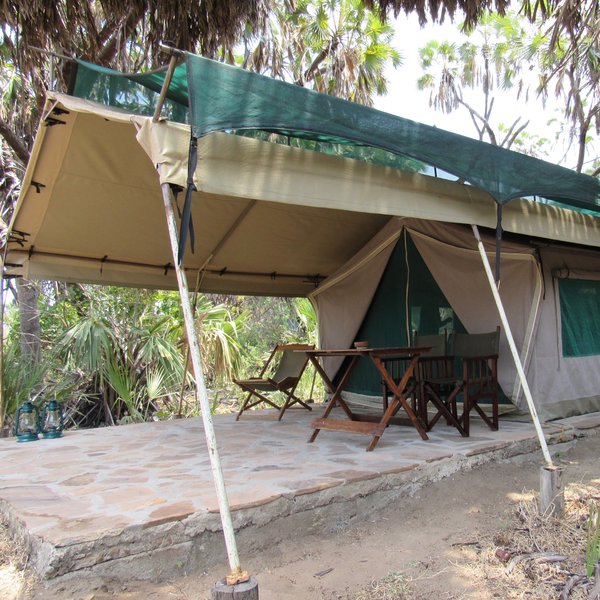
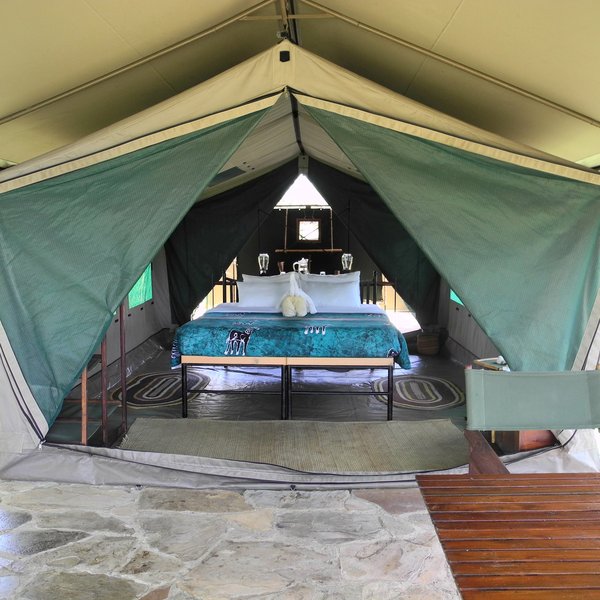
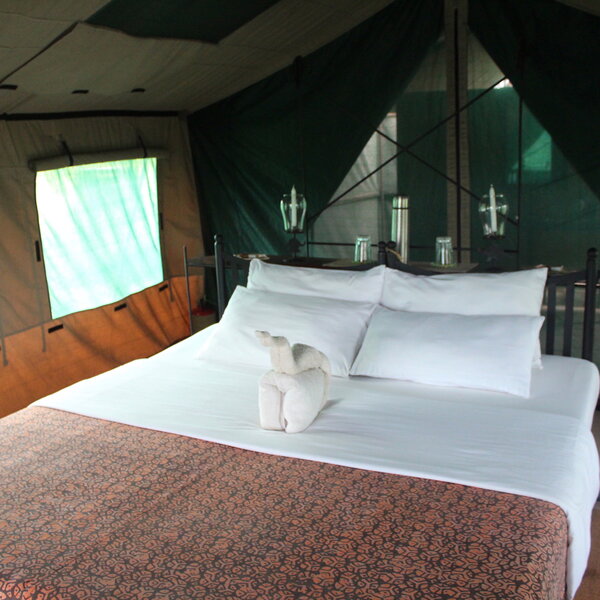
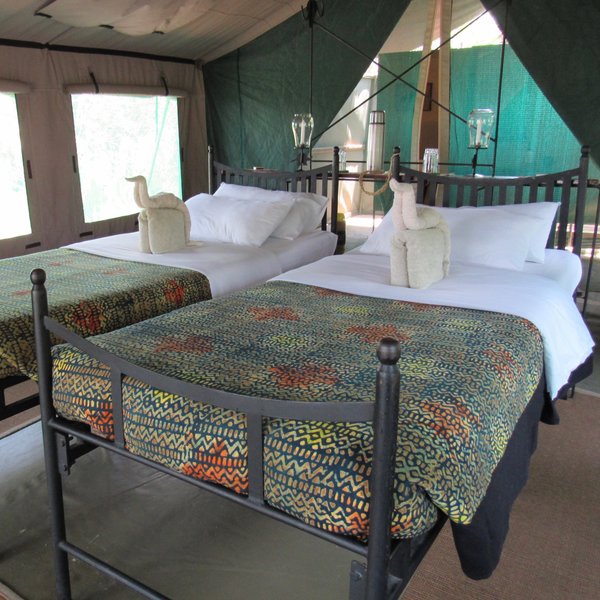
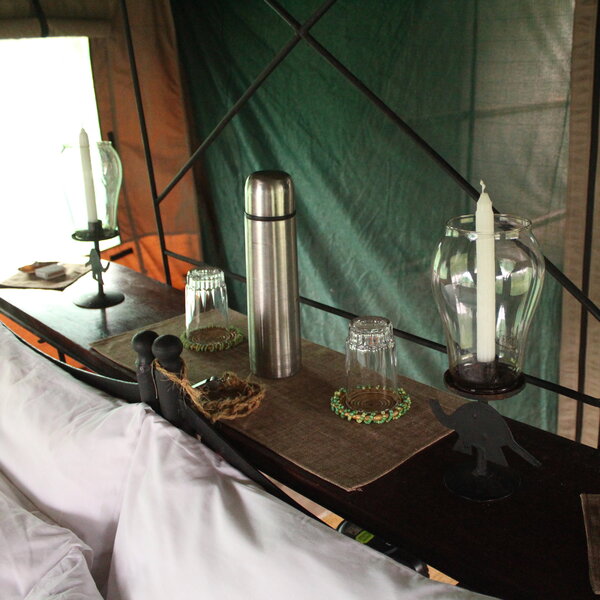
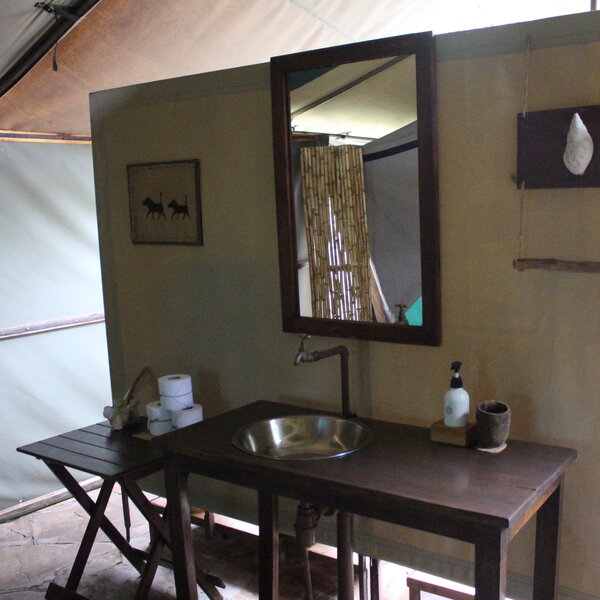
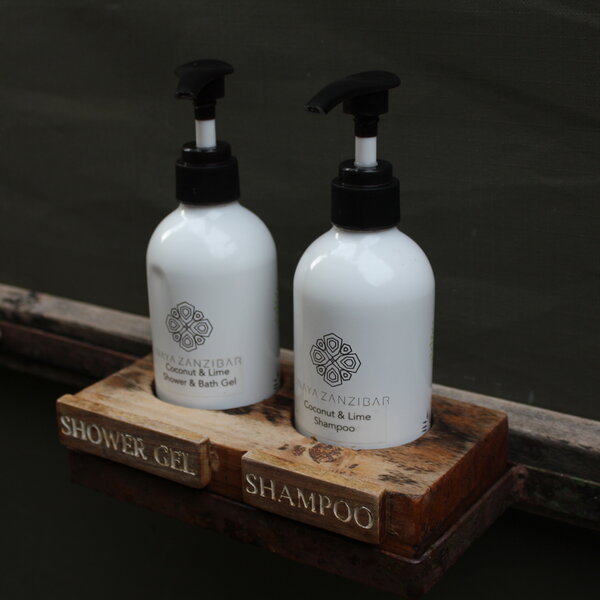
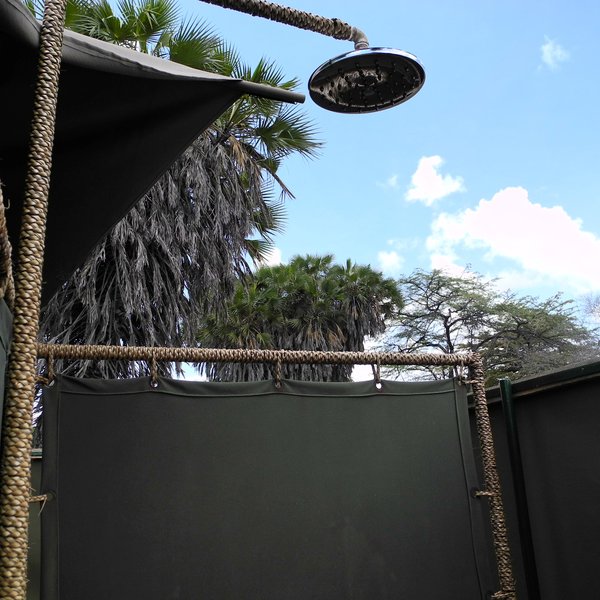
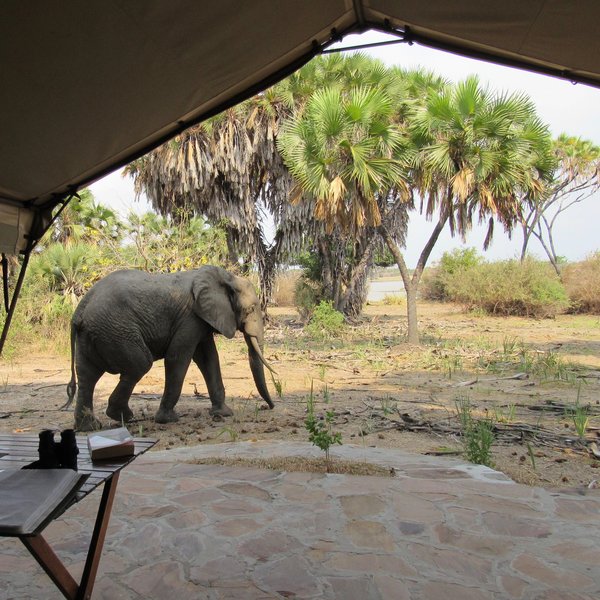
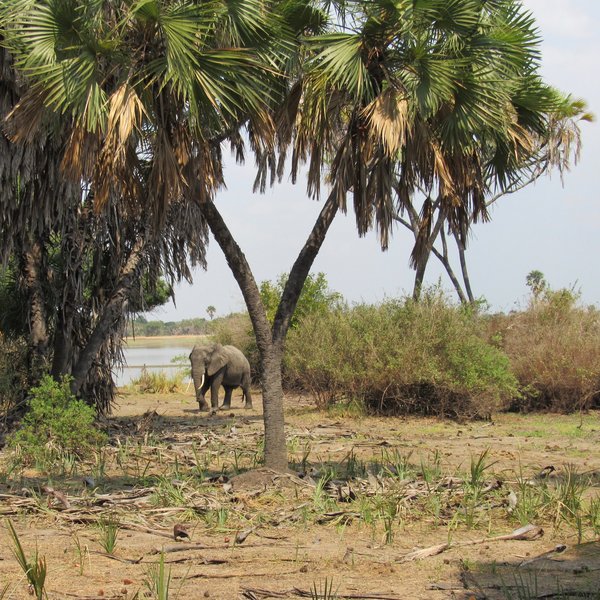
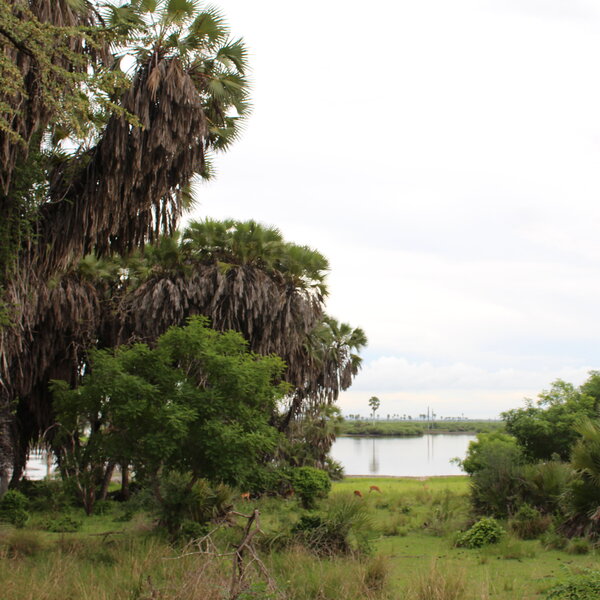
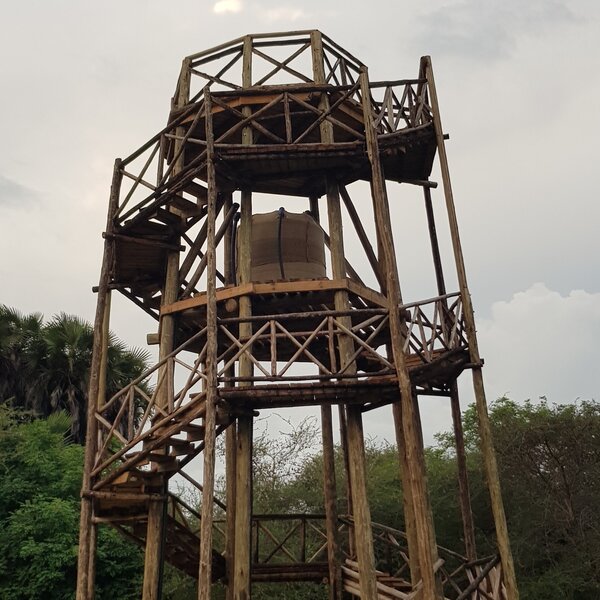
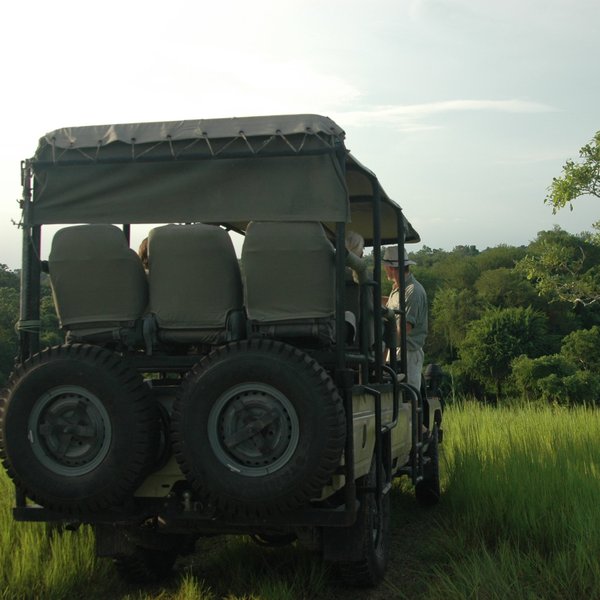
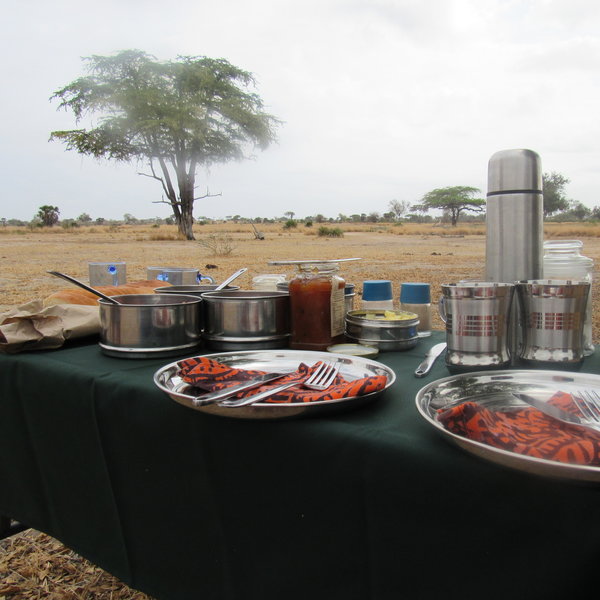
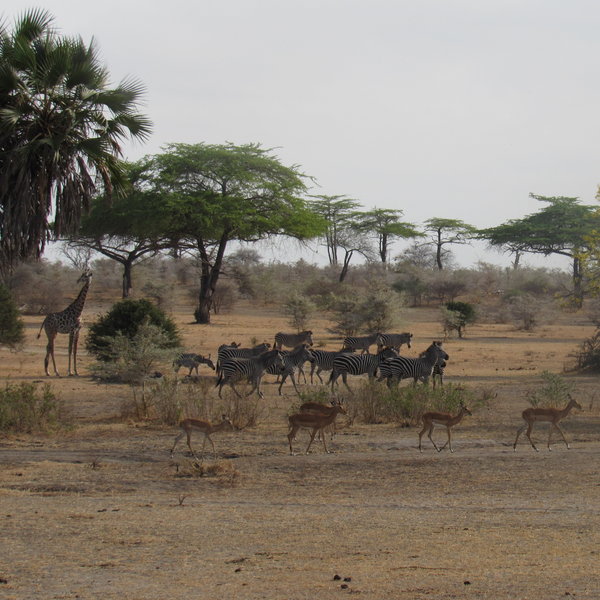
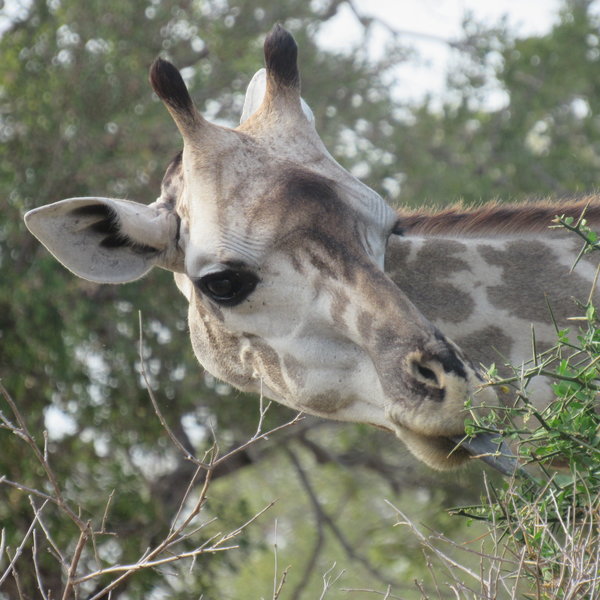
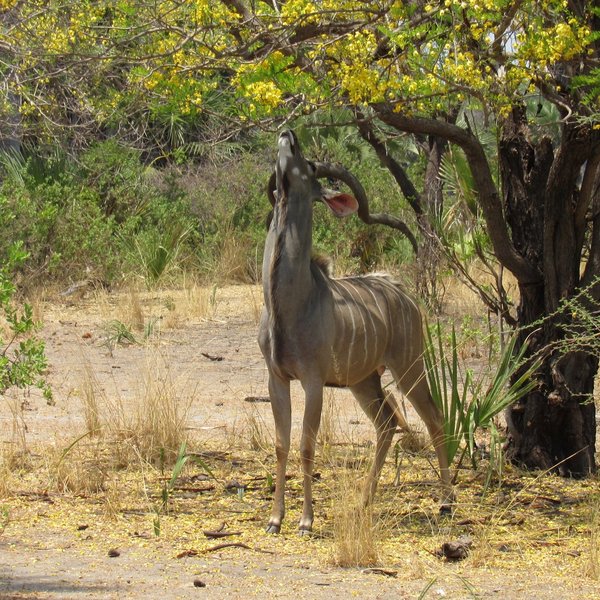
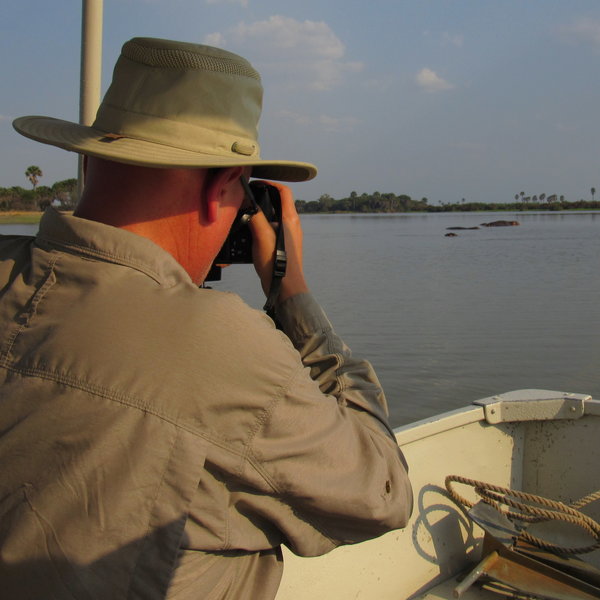
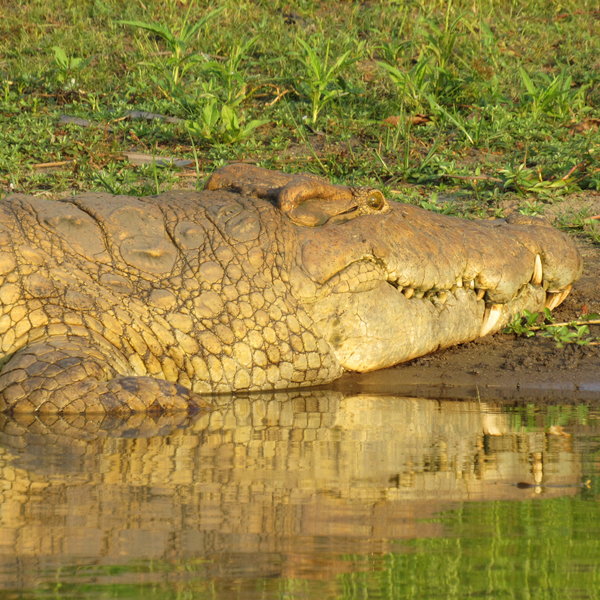
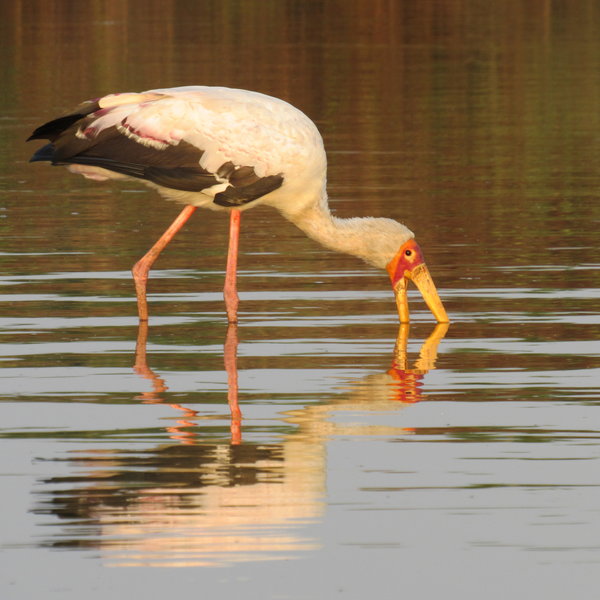
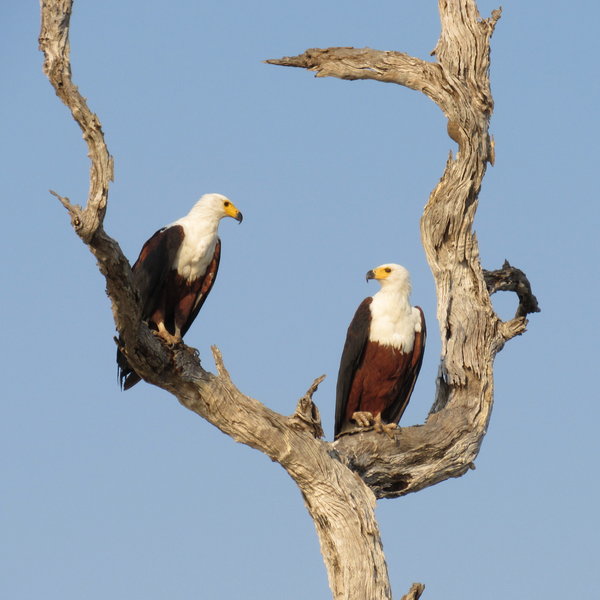
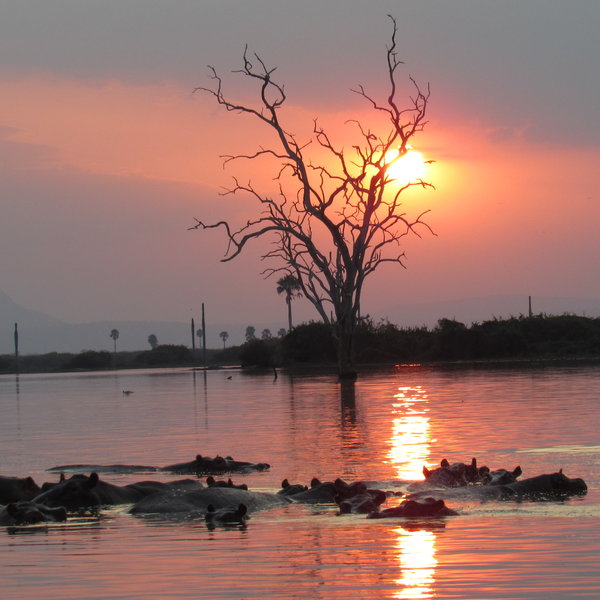
Expert Africa's gallery
When we travel we take lots of photos ourselves to give you a real and un-edited view of the safaris. See our 74 pictures and 1 videos of Lake Manze Camp to get the candid view.
View gallerySafaris visiting Lake Manze Camp
Just ideas, we'll always tailor-make a trip for you
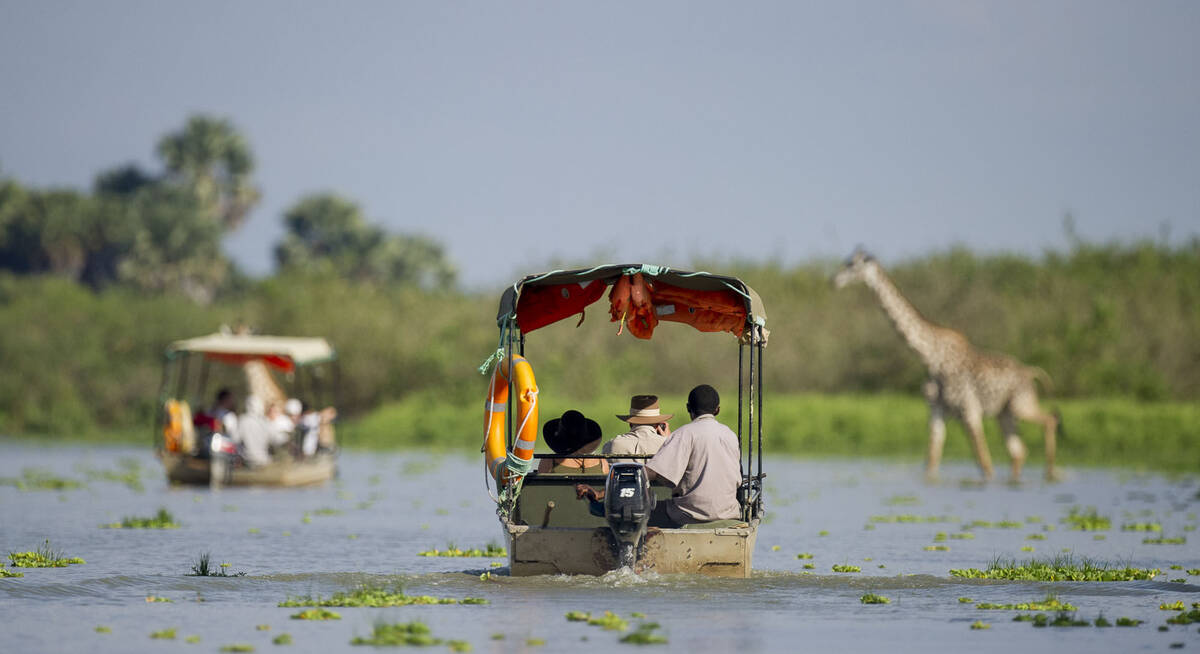
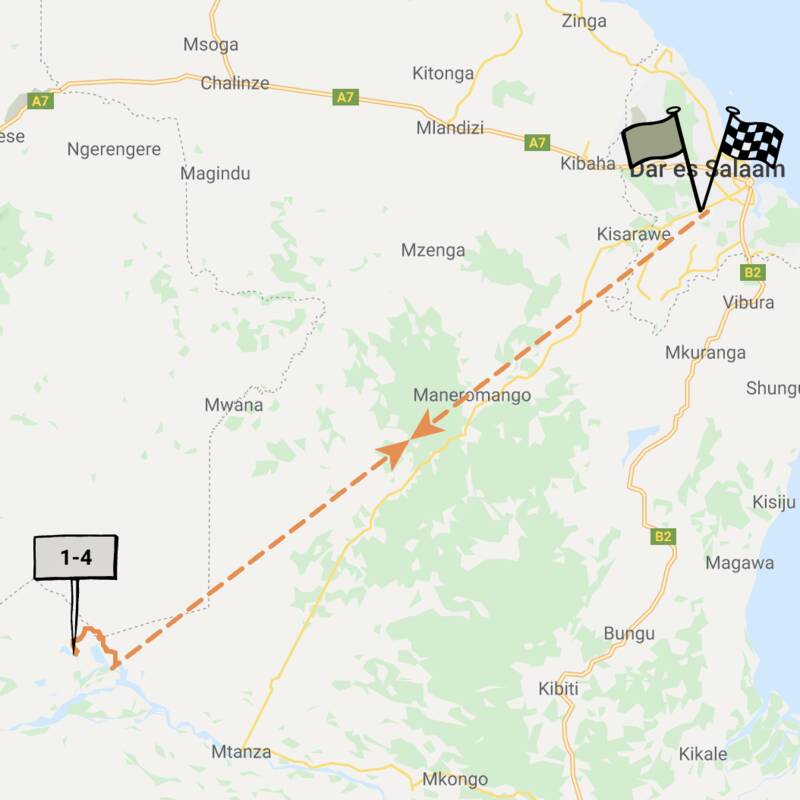
Bat-eared Fox Fly-in Safari
3 days • 1 location • 1 country
DAR ES SALAAM AIRPORT TO DAR ES SALAAM AIRPORT
This is an ideal first-time safari and is the perfect add-on to a holiday in Zanzibar. Nyerere National Park is one of Africa’s biggest wildlife areas and is home to an abundance of animals.
Visiting Nyerere
US$2,690 - US$3,090 per person
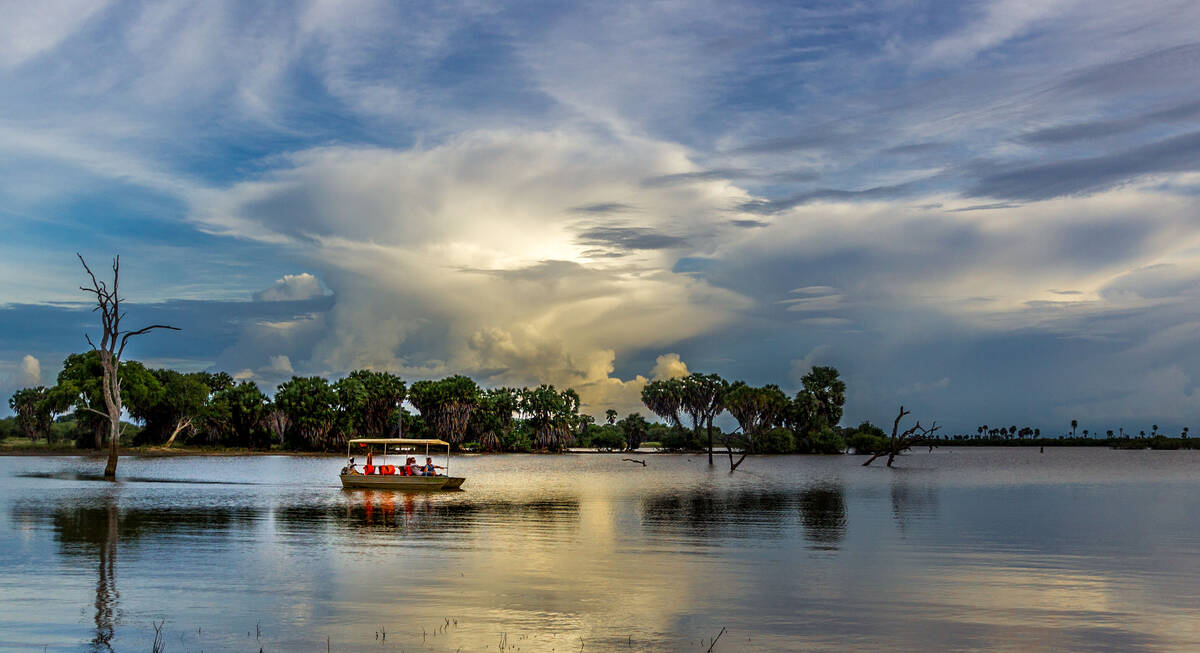
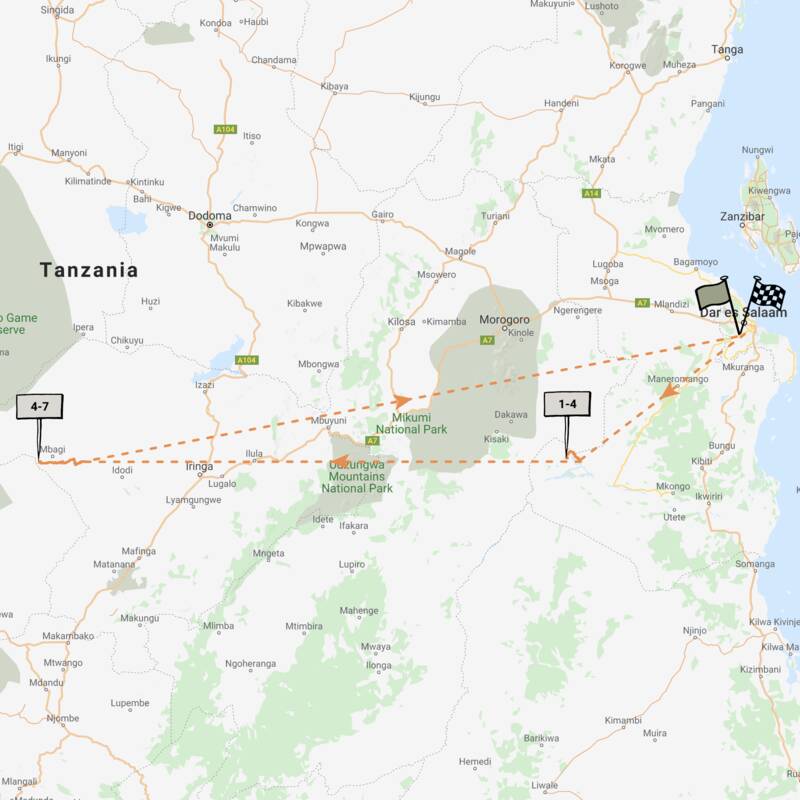
Dwarf Mongoose Fly-in Safari
6 days • 2 locations • 1 country
DAR ES SALAAM AIRPORT TO DAR ES SALAAM AIRPORT
Stay in two eco-friendly, rustic bush camps in Nyerere National Park and Ruaha National Park. Remote wilderness, a diversity of habitats and a good range of activities are available in these two wildlife havens.
Visiting Ruaha, Nyerere
US$4,810 - US$5,320 per person
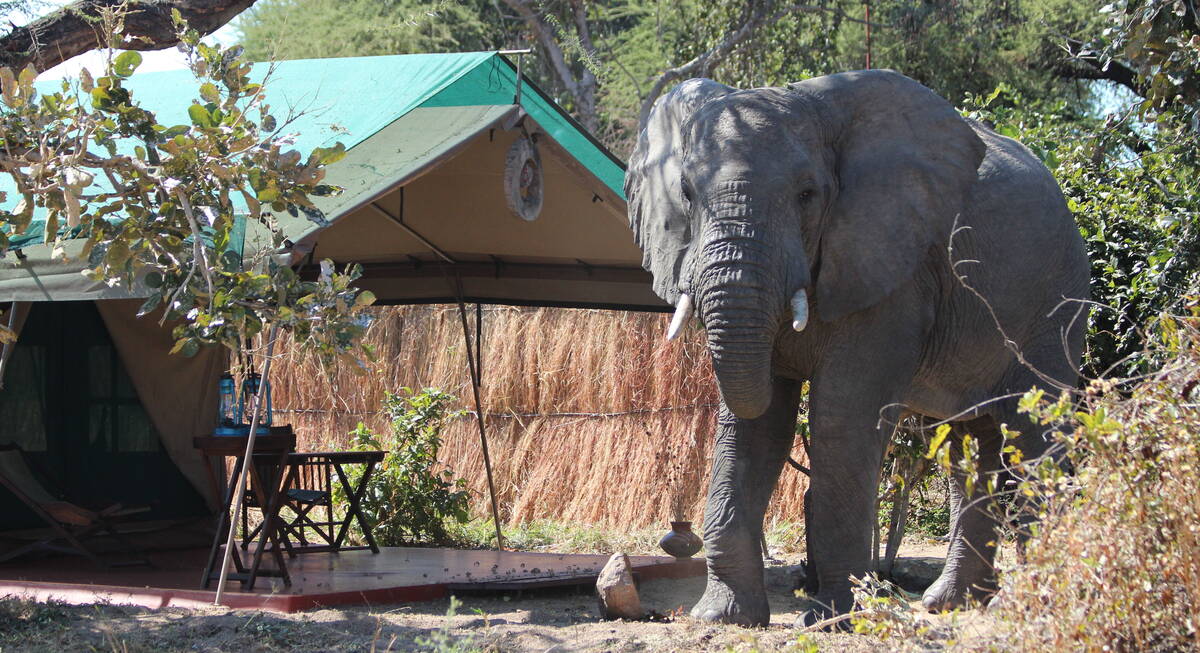
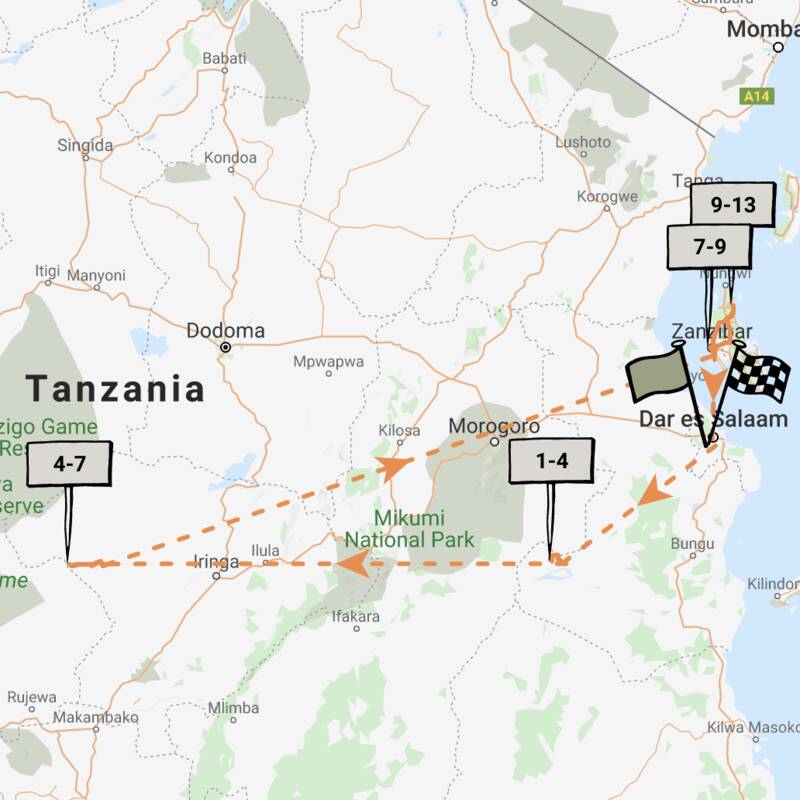
Turaco Safari
12 days • 4 locations • 2 country
DAR ES SALAAM AIRPORT TO DAR ES SALAAM AIRPORT
This top-value holiday idea combines two safari areas with a week on the Indian Ocean island of Zanzibar. Photograph lions and elephants, then relax under the palms on a powder-sand beach.
Visiting Nyerere, Ruaha and 2 other areas
US$6,190 - US$6,830 per person
Lake Manze Adventure Camp: Our full report
Lake Manze Adventure Camp opened in 2007 on a prime location overlooking Lake Manze.
One of the more northerly of a series of lakes and rivers, this lies within a rich alluvial floodplain of the Rufiji River. The camp itself, lies at the heart of Tanzania's Nyerere National Park (formerly the Selous Game Reserve), in a grove of borassus, doum and wild date palms. Deliberately rustic in style, it provides guests with simple comforts and a strong sense of wilderness.
Since opening, Lake Manze Camp has cemented a good reputation for the no frills, good value, good quality safari experience it promised. What really makes it stand out is the setting and closeness to nature. Graceful impala and mischievous monkeys feed along the driveway, giraffe pass along the lake shore, elephants shake fruit from the palms and colourful birds flit through the greenery.
The open-sided lounge/dining area at Lake Manze is a large, L-shaped banda. Sandy floors and high thatched roofs keep the area cool during the day and maintain the rustic simplicity of the camp. The long lounge, furnished with locally made wood and wicker furniture topped with colourful cushions, points out towards the lake and is a great place to sit and watch passing animals. Behind is a well-stocked bar, and the remaining wing is set with tables and directors' chairs where you sit to enjoy your meals – although sometimes you will dine out under the stars by the light of campfires and lanterns, often visited by nocturnal genet cats. Dining here is communal and hosted by camp managers, giving the camp a great community atmosphere.
A small curio display sells Maasai beads and other souvenirs. These are bought by the staff from their local villages and all proceeds go directly to them.
Sited under shady palm trees, Lake Manze's 12 ensuite tents are raised up on flagstoned plinths which stand above the floodplain and have views of the vegetation and lake beyond. Five of them are located to the north and west and seven to the south and east. Three pairs of tents are set quite close together, which makes them suitable for families. For a family with young children the tents can be extended out to the front to create triples and quads.
Inside each spacious walk-in tent is a comfortable, standard size double bed (or twin single-size beds) with a lovely wooden or wrought iron frame. There is also a large wooden chest with a padlock for valuables, and a simple wardrobe with a wrought-iron frame and canvas shelves. Large mosquito-gauze windows on all sides of the tent allow the breeze to pass through, whilst keeping insects out. Bug spray is supplied, as is a whistle to attract attention in an emergency.
Through a zipped door at the back of the tent is an en-suite bathroom with canvas walls for privacy. Partially open air, it's simple and practical – all you need in the middle of the bush. The basin is set into a large wooden washstand, with running water and a mirror. An inner canvas wall separates this from the flush toilet and hot-and-cold shower, which are both on raised wooden slats. Shampoo, shower gel and bars of soap are provided.
Lake Manze is the only camp in Nyerere National Park (previously the Selous Game Reserve) which has chosen not to have any electricity in the rooms; instead, your evenings are lit by storm lanterns, creating a magical atmosphere. The feeling of wilderness is further enhanced by the camp's position on the floodplain of Lake Manze. Animals come down to drink here – and the old, well-worn elephant trail that runs around the lake and right in front of the camp is a popular route. This makes for memorable game-viewing experiences from the comfort of your tent and main areas.
Like all the camps in Nyerere National Park, Lake Manze Adventure Camp's activities incorporate 4WD safari drives, boat safaris, fishing and also walks. The camp has ten vehicles, and each game drive is accompanied by a guide and driver. Walks are with a guide and an armed ranger and generally take place in the morning before the heat gets too much. Boat trips are best in the afternoon to catch sunset over the lake and switching to a solar powered battery motor when cruising allows you to glide close to animals and birds without startling them. Half day and full day game drives, the latter taking in Selous' grave (for whom the park was previously named) and the hot springs, are on offer. It is worth noting that the safari walks are at an additional cost of 55 US dollars per group, and fishing incurs an additional 10 US dollars park fee – both payable in camp.
Lake Manze Adventure Camp (often referred to as 'Lake Manze Tented Camp', 'Lake Manze Camp', or simply 'Lake Manze') is a sister-camp to Mdonya Old River Camp, in Ruaha National Park.
Activities
4WD Safari
Birdwatching
Boat trip
Fishing
Guided walking safari
Private activities
Families & children
- Attitude towards children
- Lake Manze welcomes children over the age of six.
- Property’s age restrictions
- Children must be over the age of six years.
- Special activities & services
- There are no special services for children at Lake Manze Camp, although the camp can make up triple rooms with an extra bed for children, and three pairs of tents are built together, especially for families. The camp will also provide early dinners for children.
- Equipment
- Lake Manze Camp has no special equipment for children.
- Generally recommended for children
- Lake Manze Camp has a friendly and informal atmosphere that is great for children. Having said that, it is a very wild camp, with big animals passing through and close by regularly. Therefore, the camp is better suited for mature and sensible children who enjoy nature and are over the age of ten.
- Notes
- Parents must be aware that Lake Manze is an area of dangerous big game, so children should be closely supervised at all times. Children under the age of 16 are not permitted to walk at Lake Manze.
Food & drink
- Usual board basis
- Full Board & Activities
- Food quality
- Lake Manze Camp offers simple yet tasty food, very much in keeping with the camp style. Breakfast and lunch are usually eaten at individual tables, whilst dinner is at one communal table shared by guests and management.
For breakfast you can expect a variety of cereals, fresh fruit, toast and a cooked breakfast with fresh baked bread. Tea, coffee and juice are also available. Alternatively, a bush breakfast will be packed for you should you choose to depart early on a morning or full day game drive.
Lunch will then be a light, informal meal. On past visits we’ve enjoyed chicken pie, rice and salad and egg and tomato quiche, green beans in a satay sauce served with a salad. Most recently (2019) we sat down to vegetarian pizza, corn and raisin flavoured rice, green salad and freshly baked herb rolls followed by a small chocolate muffin with icing sauce.
Dinner is a three-course meal with lots of flavour and is usually eaten together, in an informal dinner-party style. On past visits we’ve enjoyed vegetable soup to start, beef stew and traditional corn ugali, served with ratatouille and green beans, finished off with chocolate mousse and pumpkin soup followed by tender, lemony chicken breasts, a spinach mix, salads and finished off with chocolate mousse again. On our most previous visit (2019) we were served with a chicken sausage roll accompanied by crispy potato sticks and sweet chili sauce, followed by beef and coconut curry, cheese and leek bake, roasted pumpkin and herby tomatoes with a chapati, and finished off with orange cake and cream. Sitting together with the managers and guides under the stars, and enchanted by visiting genets, made for very sociable and enjoyable experiences.
This is not a camp for ‘foodies’, but if you enjoy simple and tasty fare, and don’t mind instant coffee, then you will enjoy your meals here. - Dining style
- Group Meals
- Dining locations
- Indoor and Outdoor Dining
- Further dining info, including room service
- No room service is available.
- Drinks included
- Drinks are not included at Lake Manze, but they are not expensive. Expect to pay US$1 for a soft drink and around US$2 for a beer.
Our travellers’ wildlife sightings from Lake Manze Camp
Since mid-2018, many of our travellers who stayed at Lake Manze Adventure Camp have kindly recorded their wildlife sightings and shared them with us. The results are below. Click an animal to see more, and here to see more on our methodology.

100% success

100% success

100% success

100% success

100% success

100% success

97% success

94% success

88% success

47% success

33% success

6% success

0% success

0% success

0% success
Getting there
- Location
- Nyerere National Park, Tanzania
- Ideal length of stay
- Stay at least 3 nights, and preferably 4 to do the area and range of activities justice.
- Directions
- From Dar es Salaam, it's about a 45-minute flight into the Nyerere National Park, followed by a drive of around an hour to reach Lake Manze Camp, depending on what wildlife you see on route.
- Accessible by
- Fly-and-Transfer
Special interests
- Family safaris
- Lake Manze Camp makes for affordable Tanzania family safari holidays with sensible children, best aged 10+, in an informal atmosphere. With no electricity and a rustic design, it gives a strong sense of wilderness. Triple rooms and early dining can be arranged.
- See ideas for Family safaris in Tanzania
- Solo safaris
- Lake Manze is a very informal, single-friendly camp. Solo travellers usually join other guests on safari activities, and everyone dines communally. Low single supplements come as a real bonus at this great value camp.
- See ideas for Solo safaris in Tanzania
- Wildlife safaris
- A stay at Lake Manze allows you to feel close to the wildlife - a wide variety of game including elephant, impala, hippos and buffalos can be seen from your own tent, or you can go on a game drive or boat safari from here.
- See ideas for Wildlife safaris in Tanzania
Communications
- Power supply notes
- Generator (on whilst guests are out on activities) and solar power (for hot water). There is no electricity in any of the tents, but there are adaptors available for you to charge batteries in the main area, usually during dinner. Solar panels charge the fans in the tents and solar geysers heat the shower and basin water.
- Communications
- Although there is cellphone reception and email in the main office, this is for camp use only except in case of emergency. There is also a wireless laptop connection, which may be used by guests for any urgent and brief communications.
- TV & radio
- There is no TV for guests, though the staff tent is always welcoming if a big match is on.
- Water supply
- Borehole
- Water supply notes
- Filtered water is supplied for drinking and each guest is given their own branded drinking flask, made of aluminum, to use during their stay and take away as a keepsake.
Health & safety
- Malarial protection recommended
- Yes
- Medical care
- There is first-aid equipment on site and Lake Manze Camp has links with the flying doctors' service for serious emergencies. Each vehicle has a first-aid bag and the managers are trained in basic first aid.
- Dangerous animals
- High Risk
- Security measures
- Maasai guards will escort guests to and from their tents in case there is any wildlife in and around the camp. This is mandatory after dark, but is often done in the day too due to the big animals regularly passing through. Each of the tents has a whistle which can be used to attract the camp team’s attention in the case of an emergency.
- Fire safety
- Lake Manze Camp has a fire break around the camp in case of bush fires in the surrounding area. There are also fire extinguishers in every tent and on all of the safari vehicles.
Useful info
- Disabled access
- Not Possible
- Laundry facilities
- Laundry is an extra charge, with most items costed at around US$2. Your belongings are hand washed and line dried; weather depending, they should be back to you within 24 hours.
- Money
- There are no money exchange facilities at Lake Manze Camp.
- Accepted payment on location
- Bills at Lake Manze Camp may be settled only in cash, with either US dollars or Tanzanian shillings. If desperate they can try and change British pounds or euros but the exchange rate will not be very good.
Plan and book your trip with Expert Africa
All of our trips are tailor-made, so we'll always adapt them to suit you. Talk to an Expert and let us plan and arrange your perfect trip.

Talk to an Expert
Call or email us now! We’ll match you with the Specialist in our team who is best suited to help you. Then together we can start planning your trip.

Set up your itinerary
Based on our experience and your ideas, your specialist will create a detailed, costed itinerary. We’ll refine it together, until we have a trip that you’re perfectly happy with.

Prepare for your trip
The same Specialist will make the seamless arrangements for your trip, send you detailed travel documents, and be available to answer any questions before you depart.

Travel with peace of mind
After you set off, you’ll be cared for by our partners in Africa, most of whom have worked with Expert Africa for decades. And if you ever need us urgently, we’re available 24/7.

When you return
We love to learn about your trip, and so will always be grateful if you’ve the time to give feedback to your Specialist when you return.
Lake Manze Adventure Camp's location
Look closer at the environment and surroundings of Lake Manze Camp.
Other lodges in Nyerere National Park
Alternative places to stay in this same area.
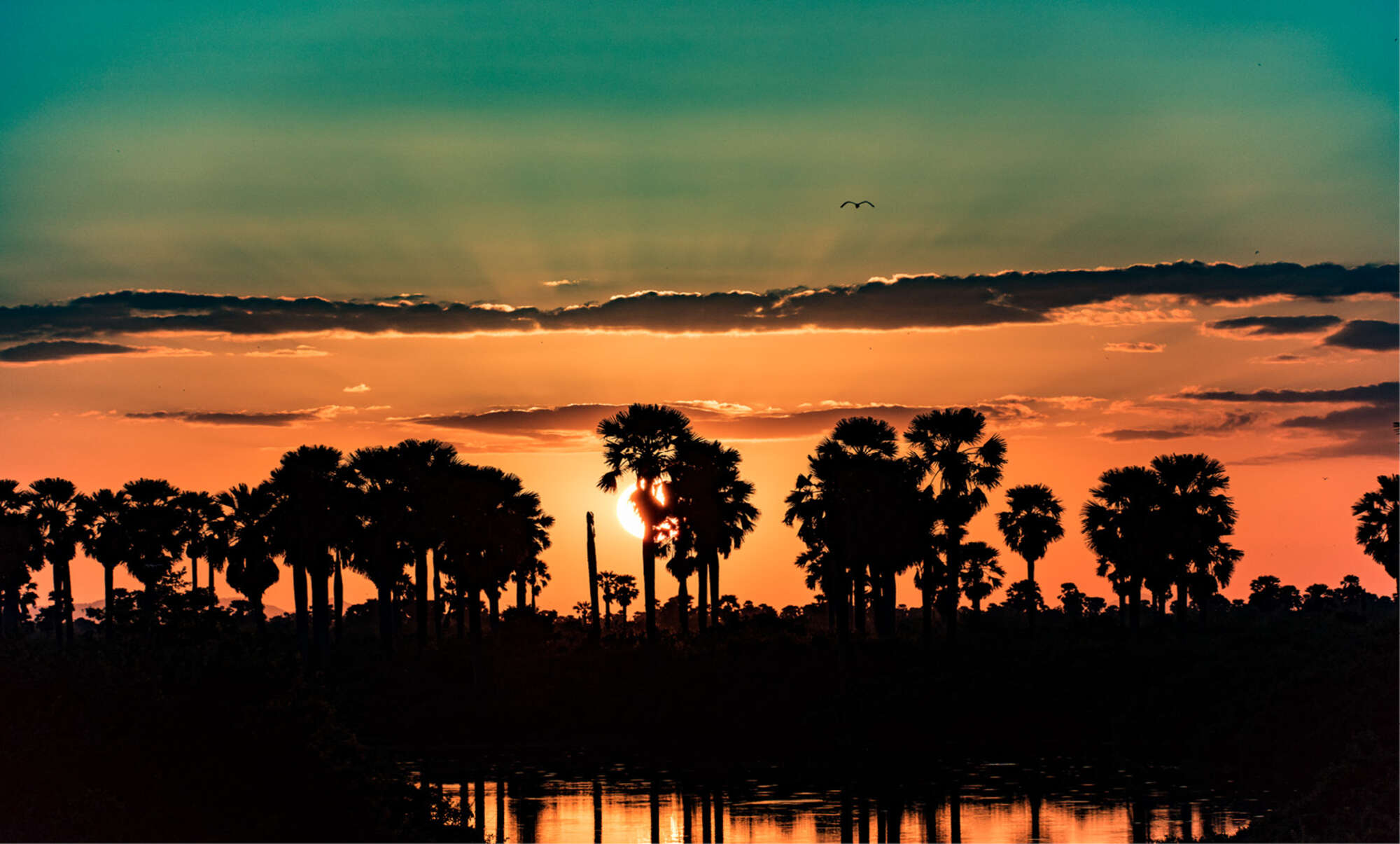
Impala Camp
Impala Camp is a comfortable, excellent-value camp with colourful tented rooms raised on platforms, good guiding and tasty food.
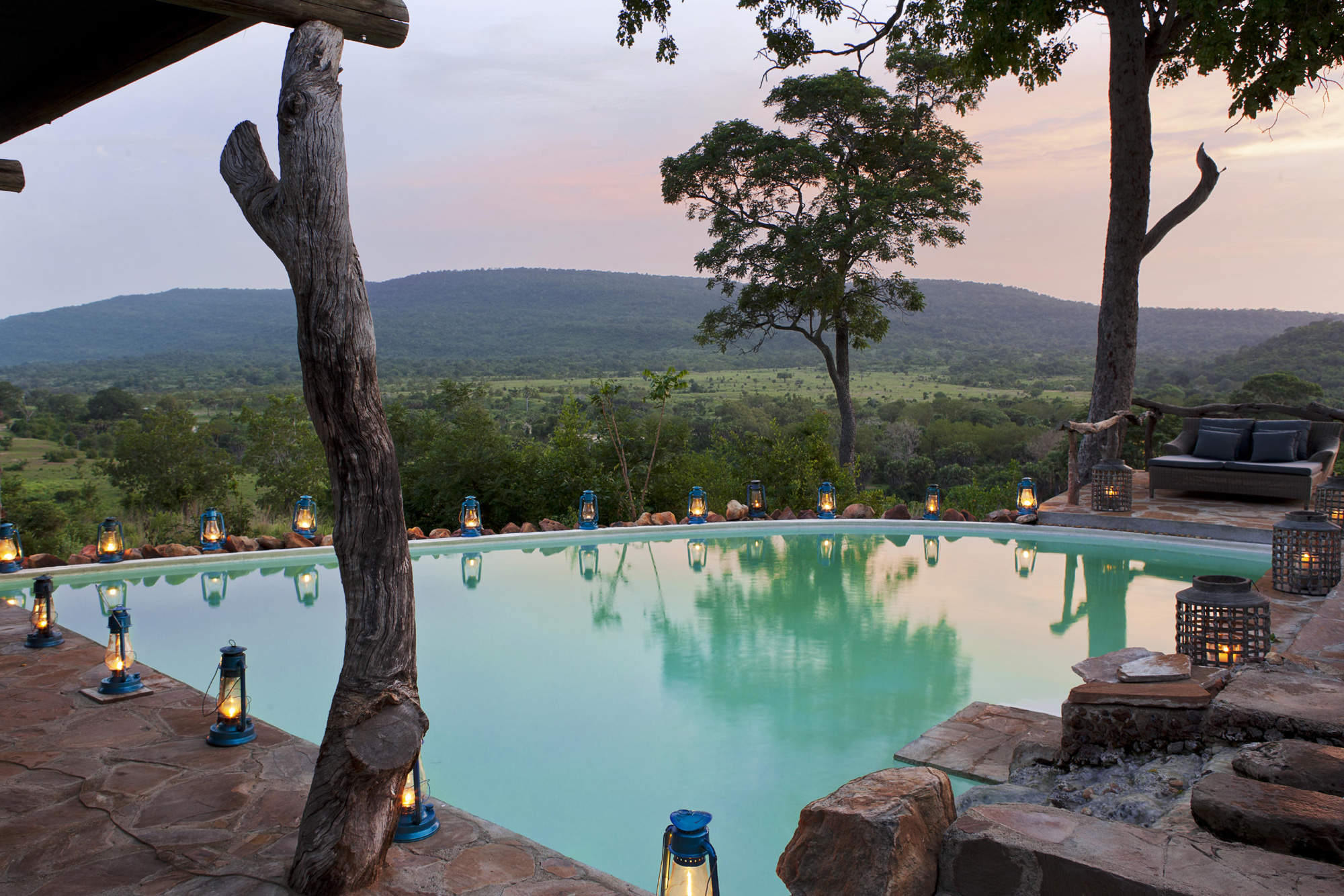
Beho Beho
Beho Beho is one of the best camps we work with in Africa, with gracious hosts, fantastic food and most importantly, excellent guiding.
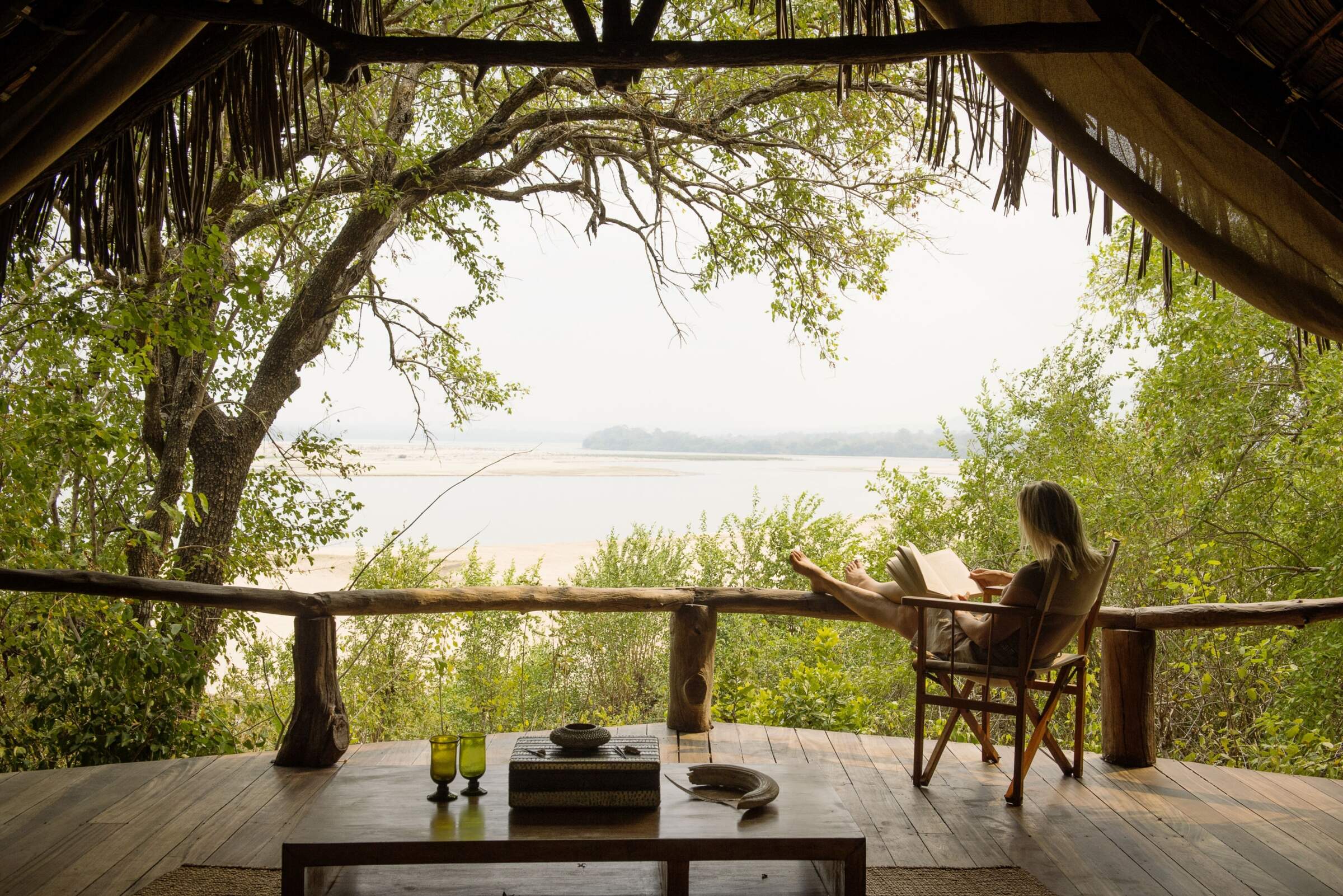
Sand Rivers Camp
The stylishly put together Sand Rivers has an outstanding reputation, with a wonderful location on the Rufiji River and great guides.
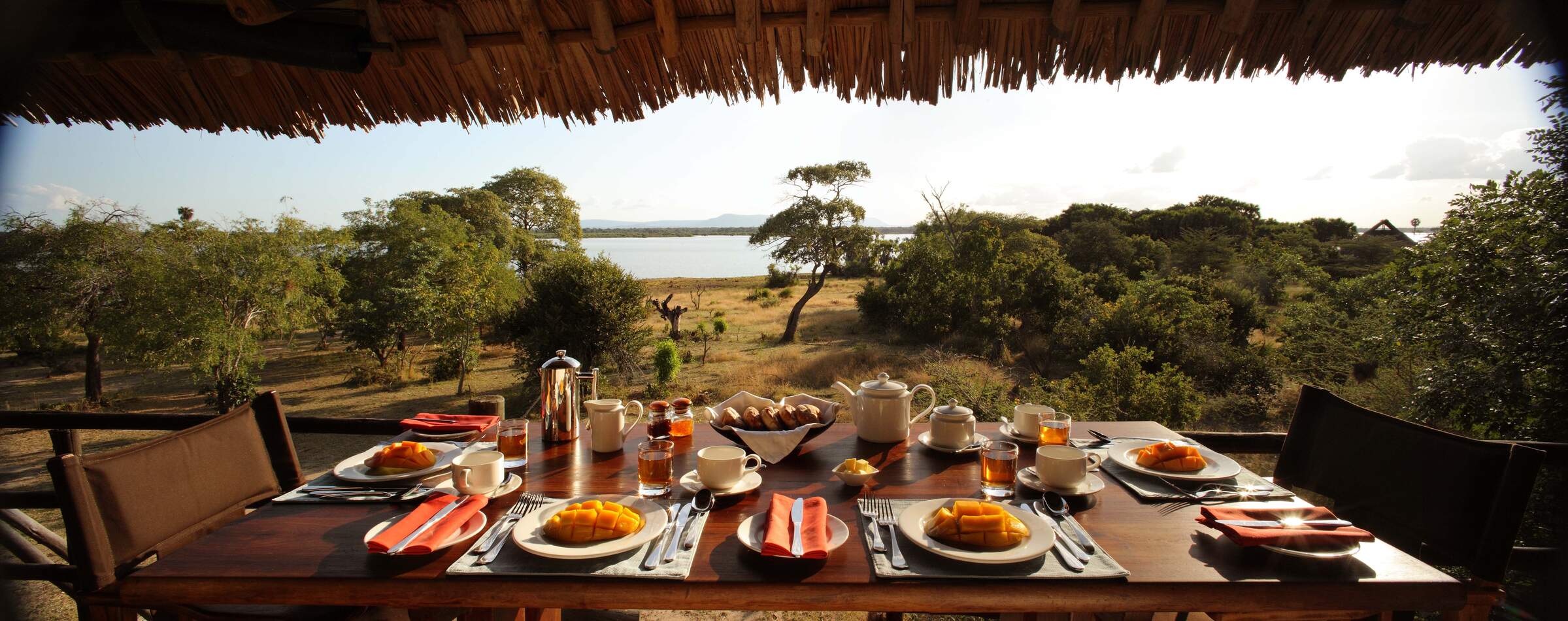
Siwandu
Siwandu is a luxurious and smoothly run camp with beautiful rooms and superb service offering great views over Lake Nzerakera.
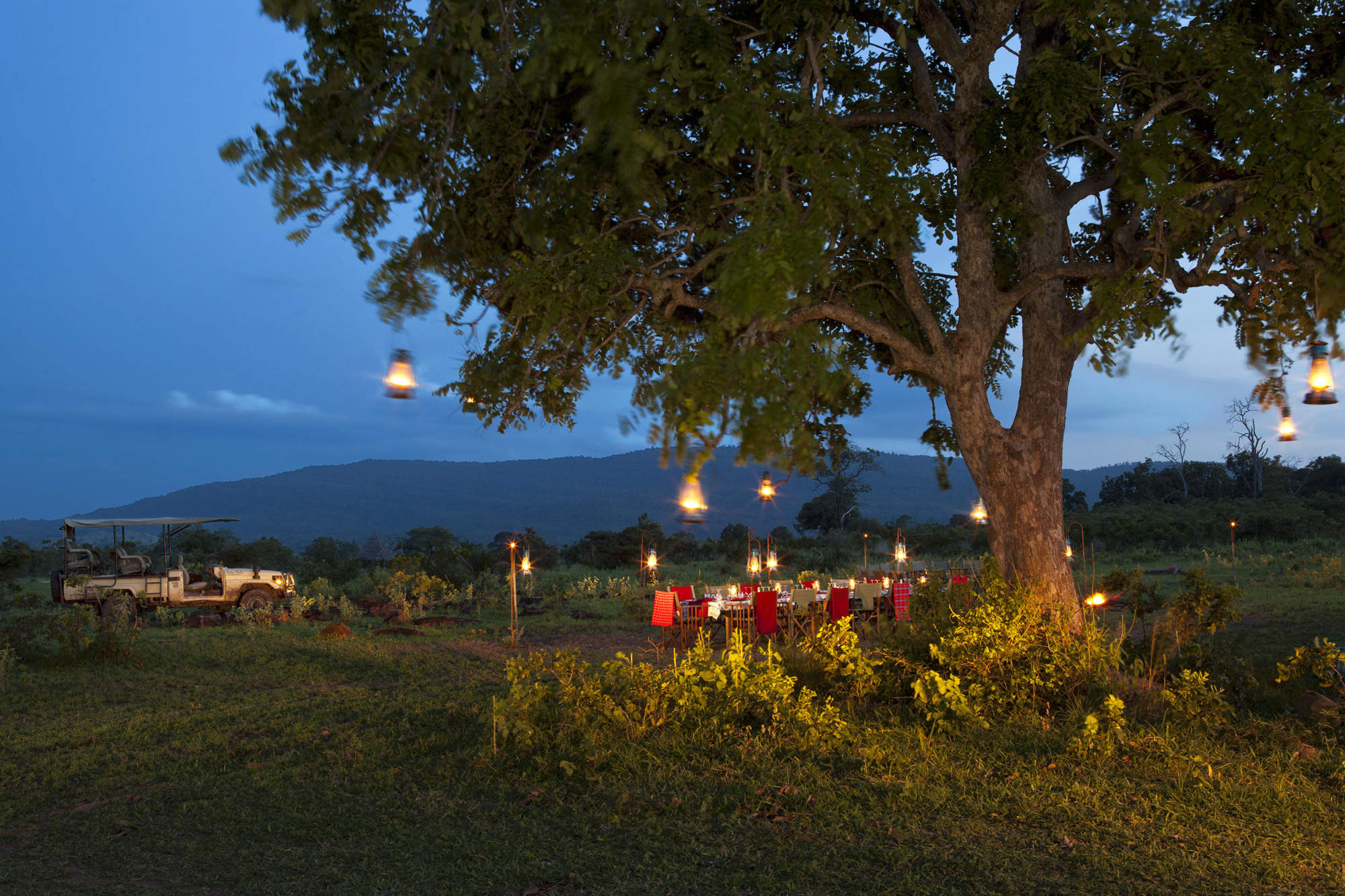
Beho Beho Tree-house
Beho Beho Treehouse is a satellite tree platform for just one couple, managed by Beho Beho and ideal as a one-night honeymoon retreat
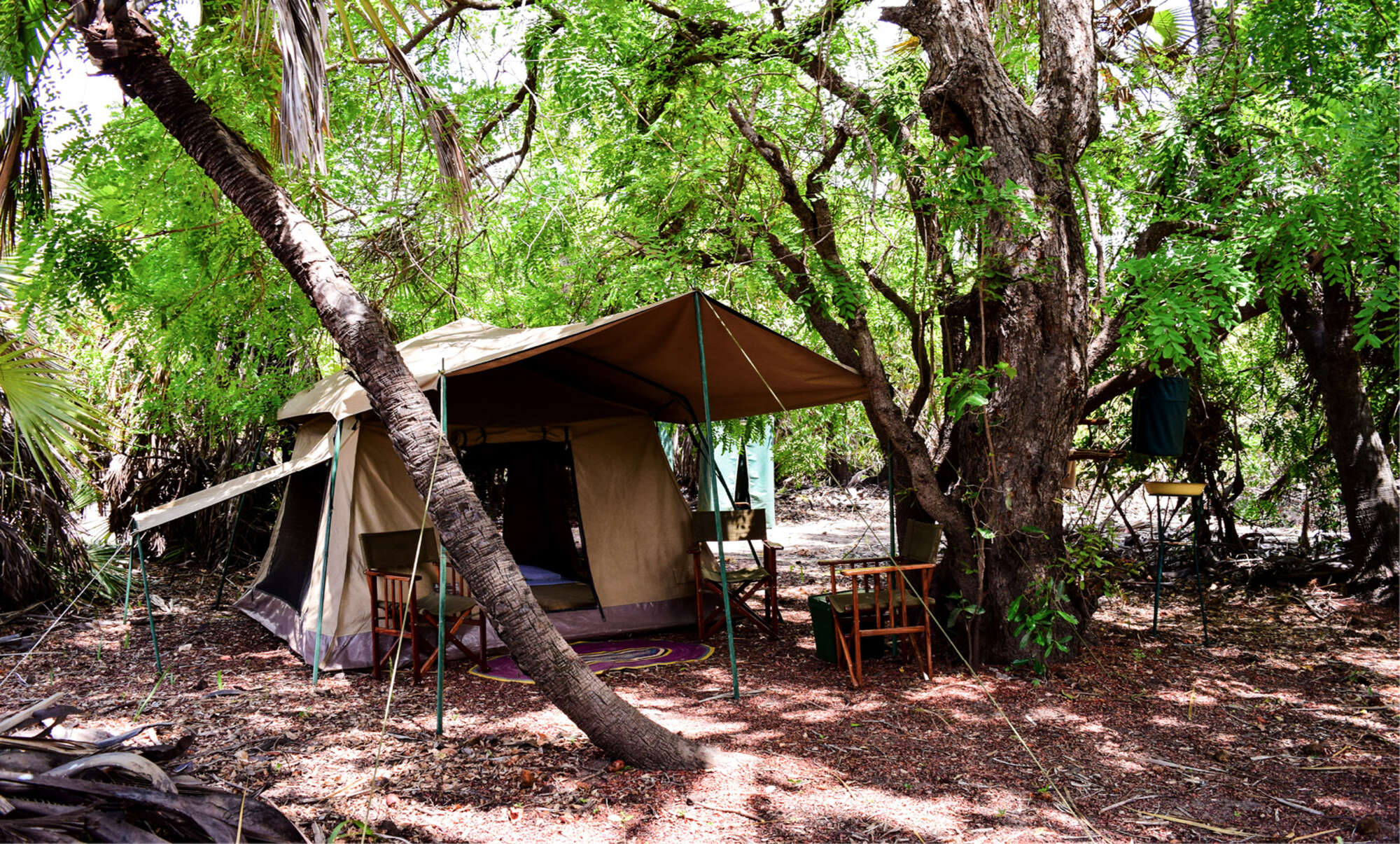
Impala fly-camping
While you're staying at Impala Camp in Nyerere National Park, you can enjoy a few nights' fly-camping in the heart of the bush.
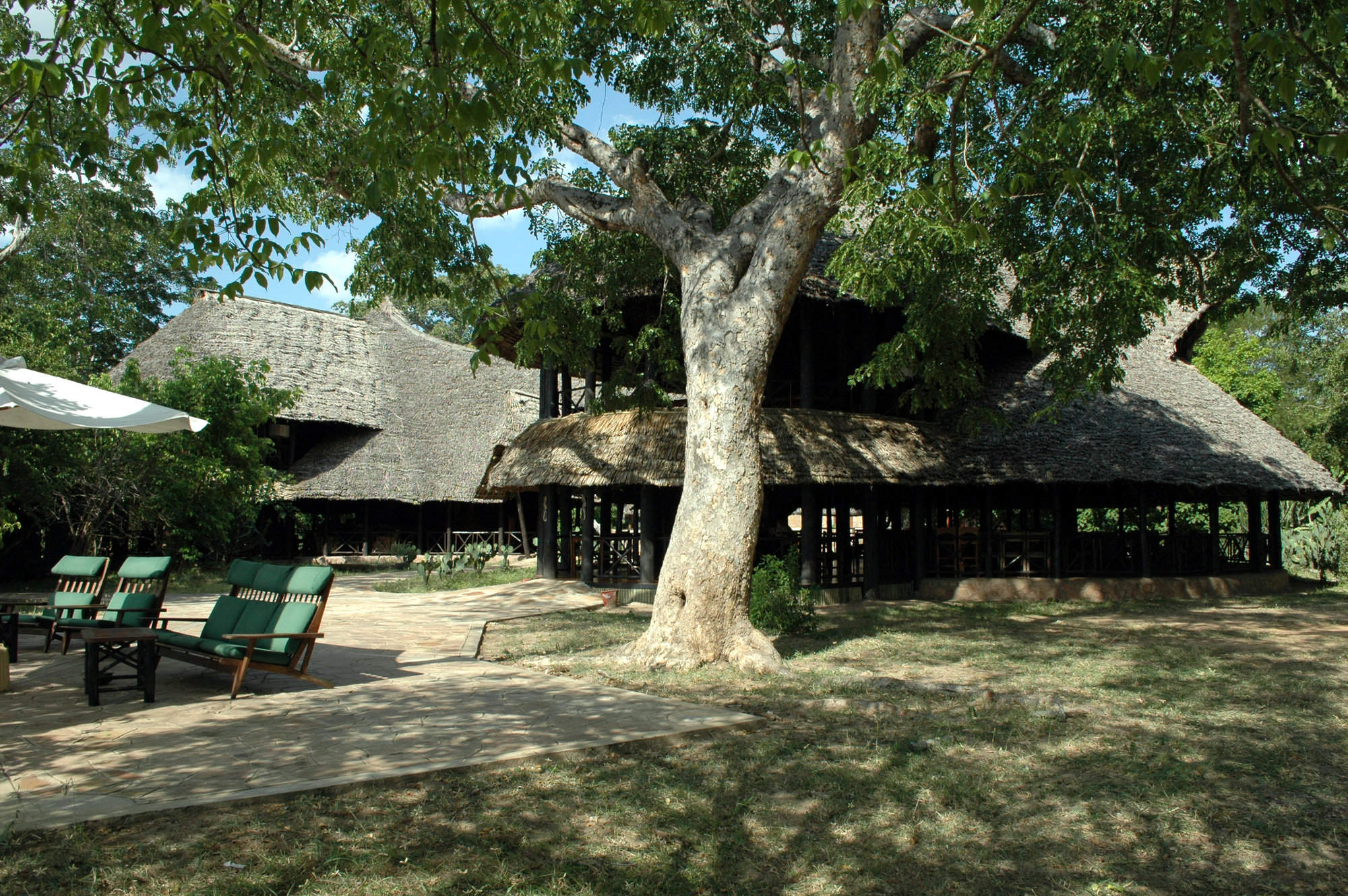
Rufiji River Camp
Rufiji River Camp has a lovely location right on the edge of the Rufiji River and while not luxurious, it is one of the lowest-cost camps in the park.
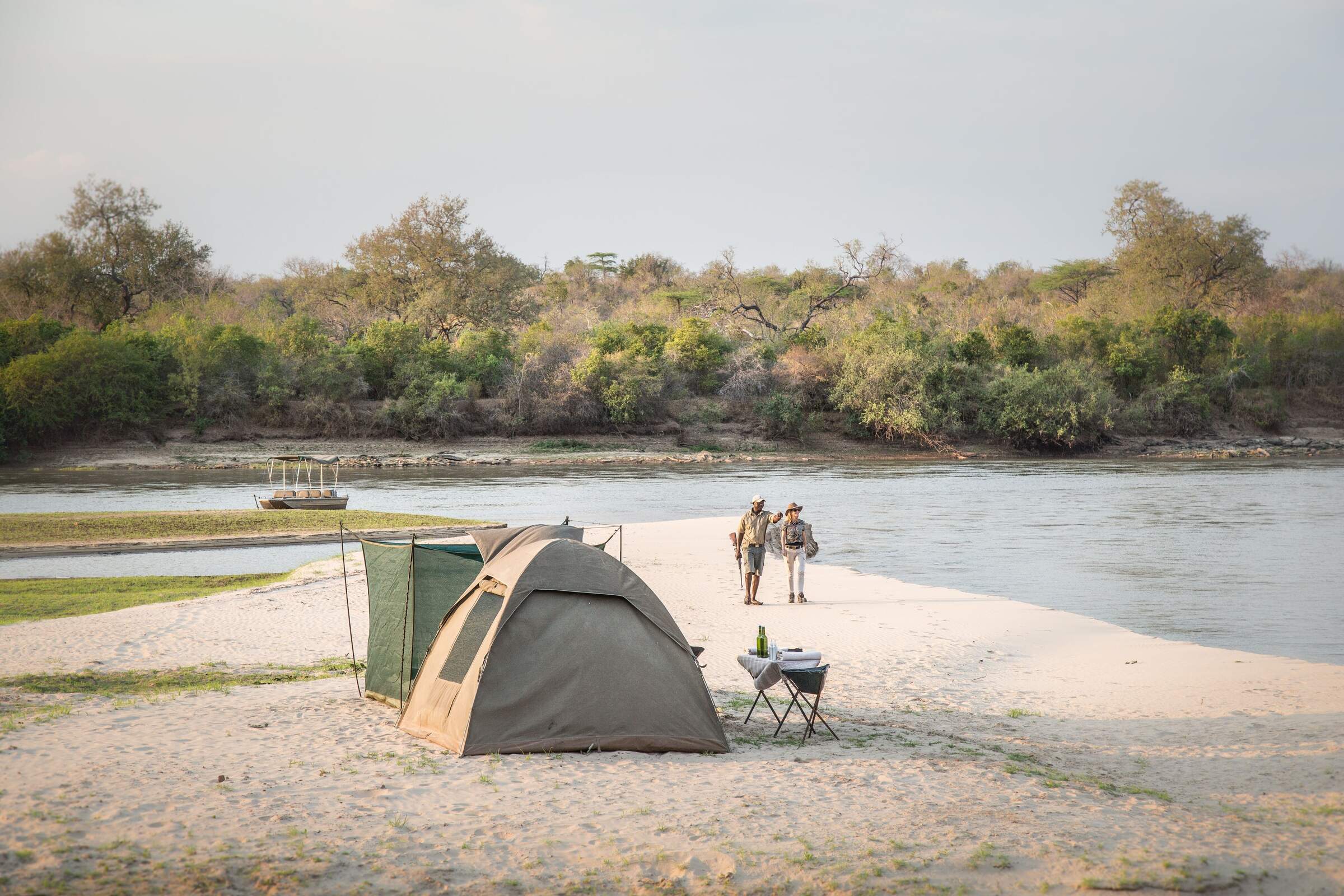
Sand Rivers fly-camp
Sand Rivers fly-camping safaris in Tanzania's Nyerere National Park operate out of Sand Rivers Camp, on the Rufiji River.
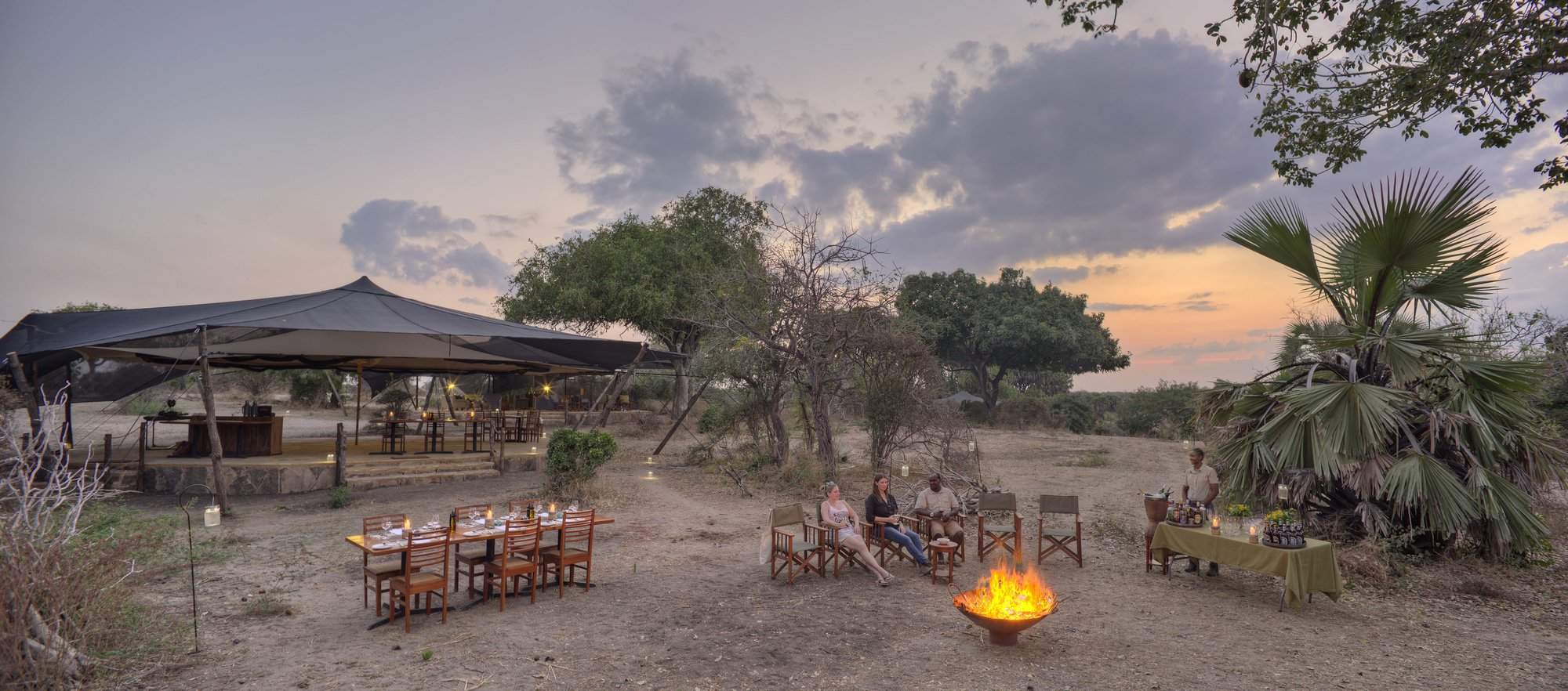
Roho ya Selous
Roho ya Selous is a smart tented camp on the west side of lake Nzerakera, close to the park’s best wildlife-viewing areas.
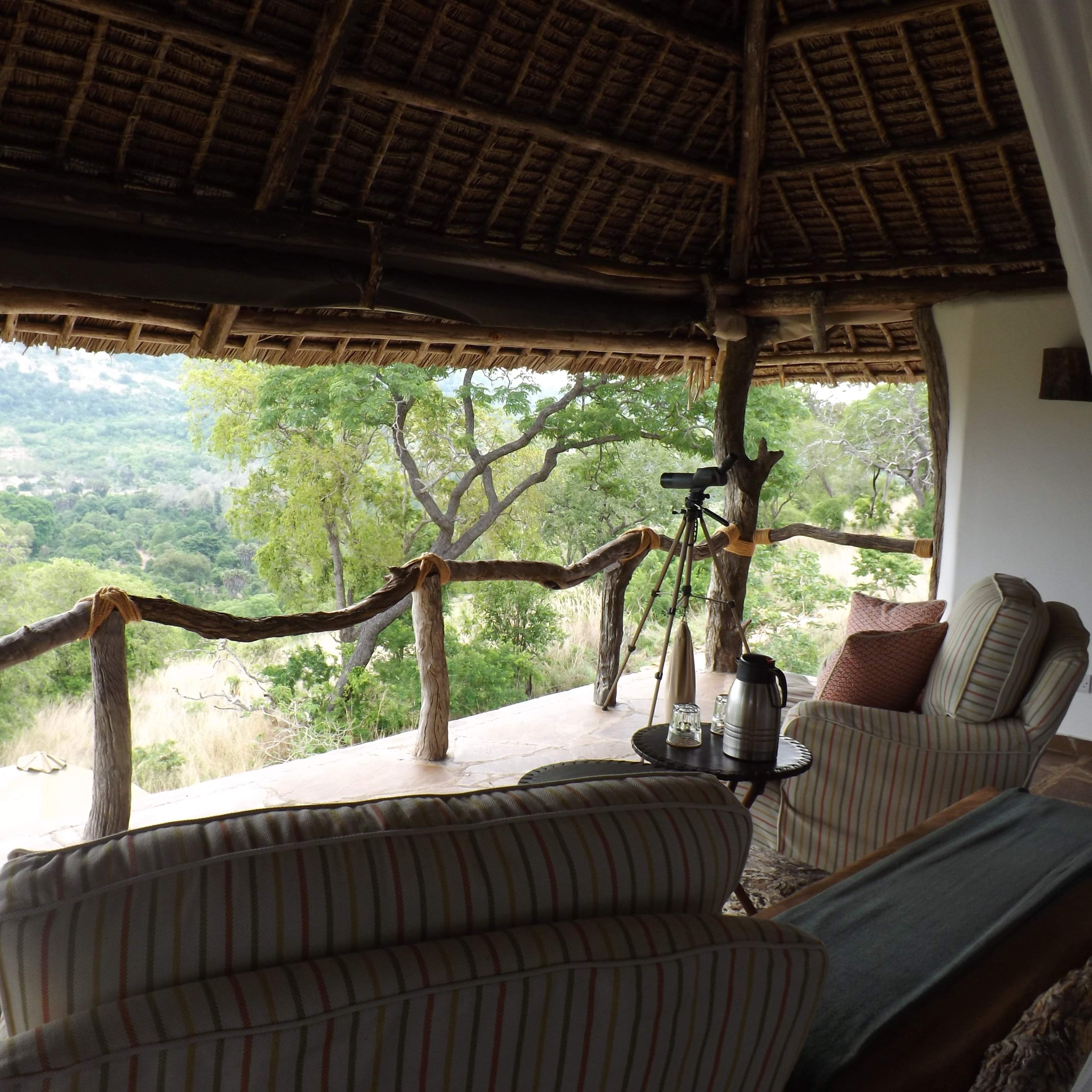
Beho Beho Bailey's Banda
Bailey's Banda at Beho Beho is a luxurious safari lodge in Nyerere National Park which can be booked exclusively for you and your party.
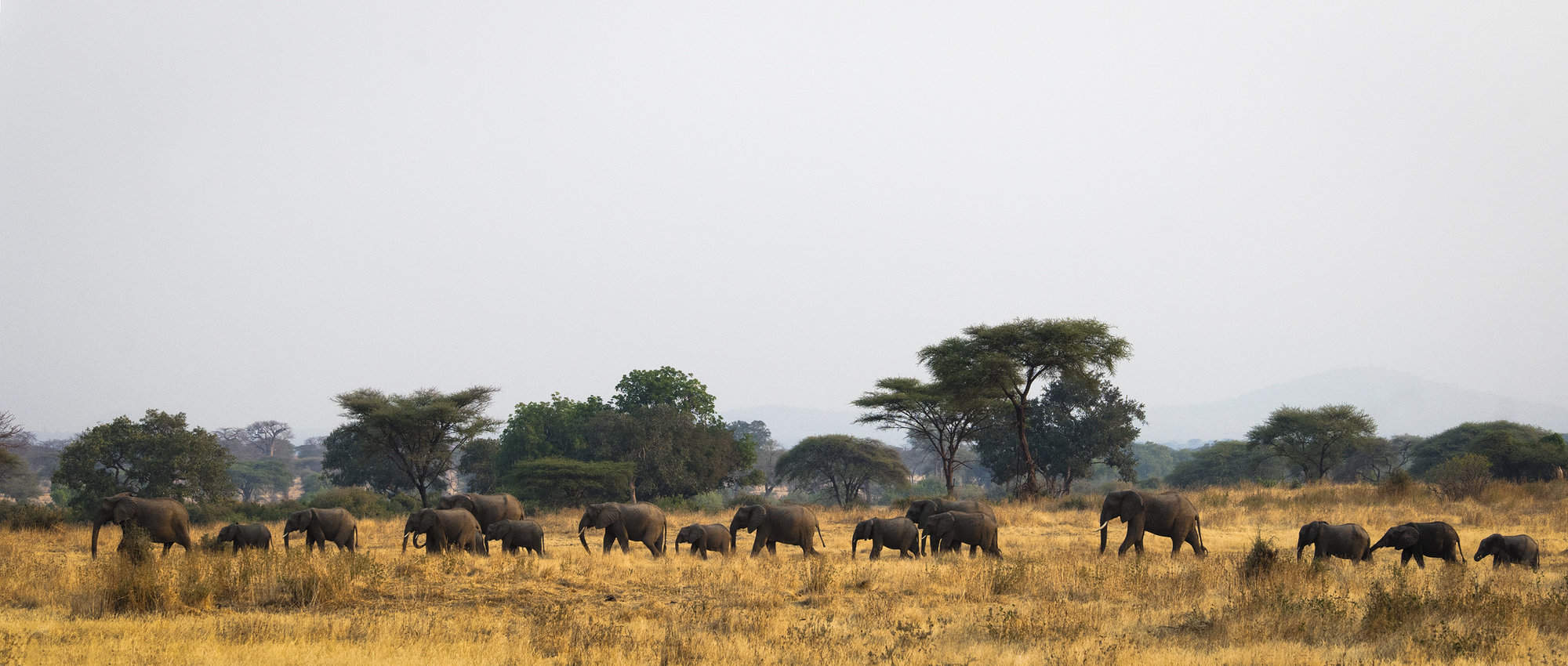
Rufiji River fly-camp
Fly-camping trips can be organised from Rufiji River Camp in Tanzania's Nyerere National Park
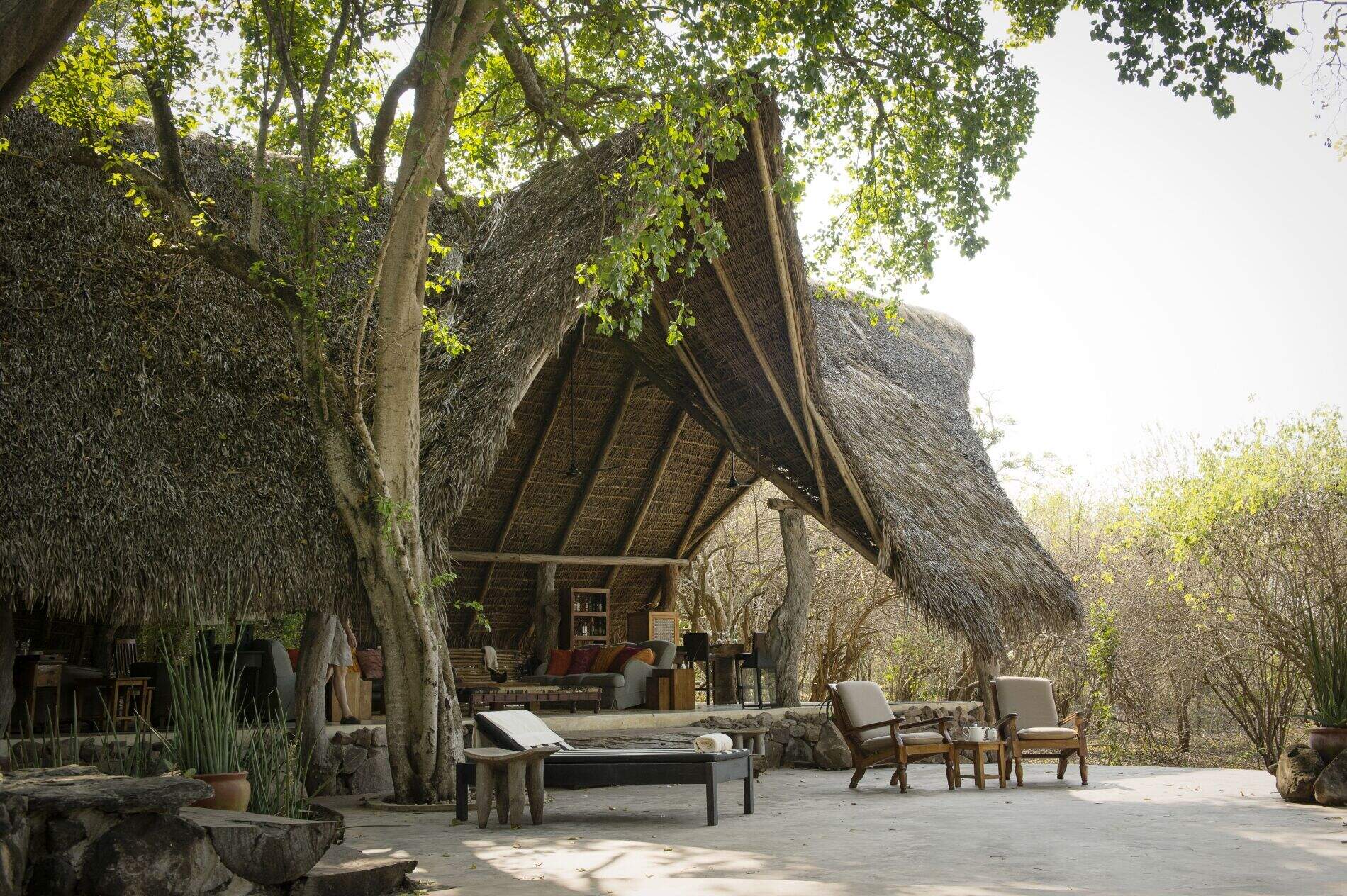
Kiba Point
Kiba Point is the private sister camp of Sand Rivers, available on an exclusive basis, with its own private drivers and staff.
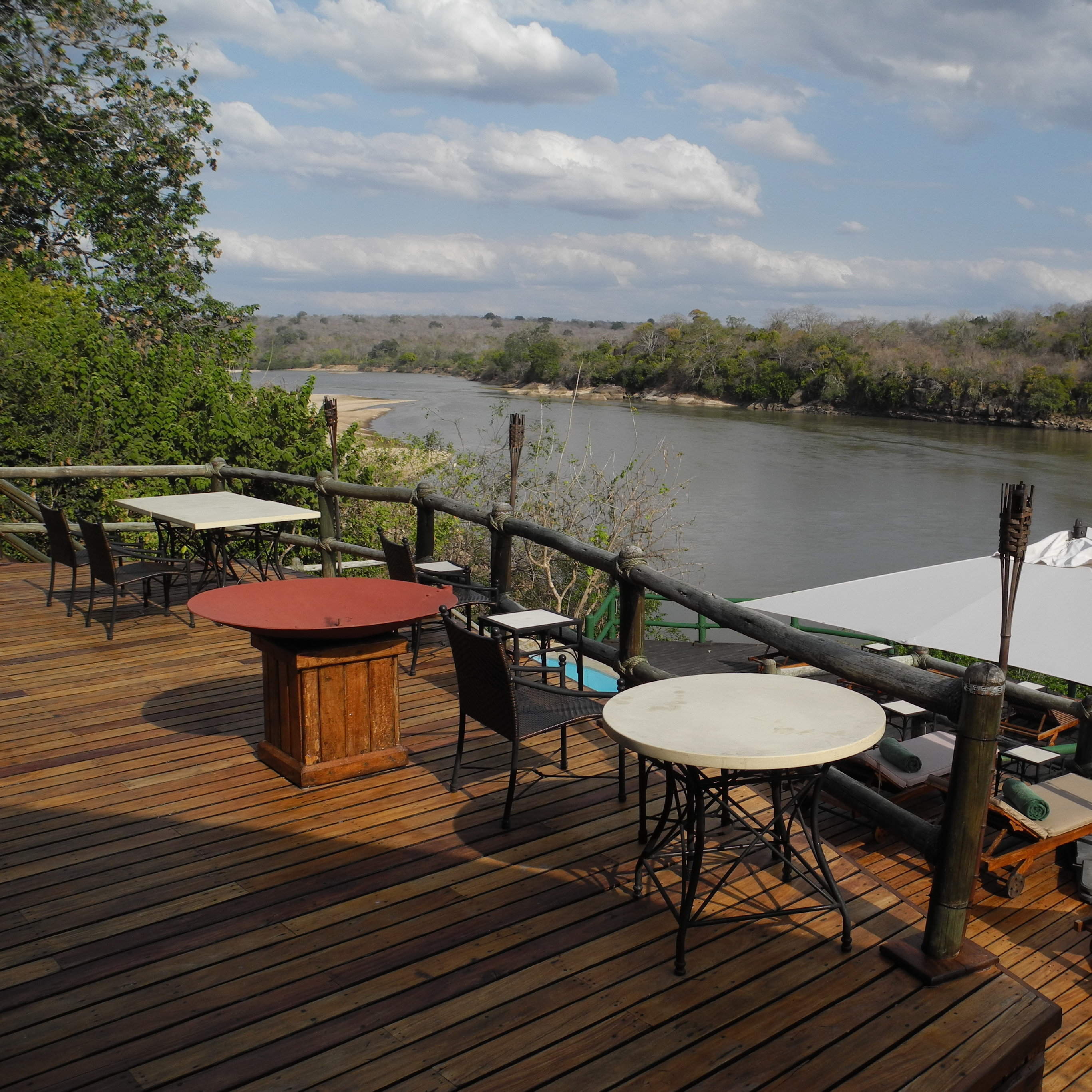
Mivumo River Lodge
Mivumo River Lodge is Serena's main lodge in the Selous. Although comfortable, the windows and air-conditioning dispel any wilderness feel.
When to go to Nyerere National Park
Our month by month guide: What it's like to visit Lake Manze Camp in Nyerere National Park
Jan
Feb
Mar
Apr
May
Jun
Jul
Aug
Sep
Oct
Nov
Dec
Tanzania in January
January usually marks the start of the short dry season, although the exact timings of this are a little unpredictable. You can expect clear blue skies and sunshine, if the short rains have stopped, and the temperatures will be building. The short dry season is a little less pronounced in Southern Tanzania, and so it can still be wet in these areas. It is an interesting time for avians as resident birds go into breeding plumage and migrant species can be present.
Once the New Year busy period has quietened down, January can offer great value and quieter parks, although the weather can be variable, and in the Selous and Ruaha the wildlife is more dispersed.
- Variable weather: clear & dry or cloudy with some rain.
- Occasional thunderstorms may occur.
- A good time of year for birding as and many migrant species are around
- The wildebeest migration is gathering in the southern Serengeti.
- Busy in early January, quietening down through the month.
Our view
A good time to visit, with pros & cons
Weather in January
Tanzania in February
February is during the short dry season and is one of the hottest months in Tanzania, with temperatures reaching around 33°Celsius. This can be a good time to visit, as some areas of the Northern Circuit are comparatively quieter than during the European summer months, and lodge rates are also a little lower.
The wildebeest will typically be on the southern plains of the Serengeti for their calving season, which tends to occur in a 2-3 week window in early-mid February – although this does vary year on year. This is also a particularly rewarding time for birdlife, as northern hemisphere migrants join the resident species.
- Hot and dry weather.
- Wildebeest migration calving on Serengeti’s southern plains.
- Ngorongoro Crater and southern Serengeti busy for the migration.
- Selous and Ruaha are typically quiet at this time.
- The parks are likely to be lush and green, leading to pretty landscape
Our view
A very good time to visit
Weather in February
Tanzania in March
The heavier ‘long rains’ start in earnest in March although exactly when varies year on year. With no need to stay close to permanent water sources, migratory wildlife disperses, and so game viewing starts to become more challenging. This is most prominently seen in Tarangire National Park. The wildebeest migration may still be calving, or have moved on into the central regions of the Serengeti.
Many of the camps in the southern parks close mid March and mobile tented camps in the Serengeti will wind down towards the end of the month in order to move location or carry out refurbishments, ready for the new tourist season.
- Hot with building humidity, before the rains begin at some point.
- Wildlife viewing is variable depending on the start of the rains.
- Parks are quiet and rates are low.
- Not great for southern or western Tanzania.
- March can be a good time for birding, with many migrant species.
Our view
A good time to visit, with pros & cons
Weather in March
Tanzania in April
April is in the middle of the long rainy season and is the wettest month, with on average 250mm of rain. Temperatures are fairly high and humid in comparison to the rest of the year. Expect the bush to be lush and flowering, and alive with insects, birds and smaller animals. It is however also dense, allowing wildlife to hide, which in turn makes game viewing harder. This is a very quiet time in terms of visitor numbers.
Many of the tented camps are closed in April, however the larger lodges remain open. The rates are significantly cheaper, and so if you are willing to work harder to spot the bigger game, some accommodation bargains can be had.
- Heavy rain expected, with impressive thunderstorms and lightning.
- Many camps closed and roads impassable due to ground conditions.
- Rates are at their lowest all year round, with very few other tourists
- Places that are open are green and vibrant, wildlife more dispersed.
Our view
This is not a great time to visit
Weather in April
Tanzania in May
As Tanzania is close to the equator there is no dramatic difference in climate throughout the year, but temperatures do start to drop a little in May. The rains are likely to still be present, although potentially clearing towards the end of the month. Visitor numbers and lodge rates are still low. The wildebeest migration is making its way through the western regions of the Serengeti, crossing the Grumeti River.
Virtually all camps in southern Tanzania remain closed, and many of the roads and tracks in the Selous become impassable.
- Heavy rains and storms are likely, this can create some dramatic skies
- Blissfully quiet in northern Tanzania, and a good time to avoid crowds
- The parks are likely to look lush and green, with long grass.
- Wildlife is likely to be more dispersed, with fewer sightings.
- The low prices make safaris much more affordable at this time.
Our view
This is not a great time to visit
Weather in May
Tanzania in June
The rains come to an end at some point during the month and migratory wildlife begins to be drawn back to perennial water sources as the land starts to dry up. It’s likely that the parks will still be quite green and the grass high though, so walking and fly-camping may be unlikely. This marks the start of the season with camps reopening, but prices are still more affordable than the subsequent months.
The migration may still be in the Western Corridor, or on the move northwards towards the Mara River. Western Tanzania presents more challenging conditions for chimpanzee trekking in Mahale National Park, as the chimps are higher in the mountains.
- Variable weather: clear & dry or cloudy with some rain.
- A transitory time for the migration – moving from west to north.
- The parks may still be quite green, and grasses high.
- Wildlife may be dispersed still.
- Relatively low visitor numbers and good value, shoulder season prices.
Our view
A good time to visit, with pros & cons
Weather in June
Tanzania in July
July is considered to be the start of the peak season, with no rainfall expected and pleasant daytime temperatures. As the parks dry, the wildlife congregates in fewer areas, grass is eaten and trampled by the migration, and game viewing gets better and better. The wildebeest are typically arriving in the northern Serengeti, ready to begin their period of crossings of the Mara River.
In the Selous and Ruaha wildlife sightings can be fantastic, with animals gathering around the lakes and rivers. Great conditions and school holidays mean the parks are at their busiest, with Ngorongoro and the Serengeti particularly crowded.
- Dry and warm daytimes, chilly and windy in the mornings and evenings.
- Great wildlife viewing, as water sources diminish.
- The most popular time of year with very high visitor numbers.
- Prices are at their highest due to the great conditions on the ground.
- To avoid the crowds consider Tanzania’s southern parks.
Our view
Fantastic: the very best time to visit
Weather in July
Tanzania in August
August is the middle of the long dry season, with clear skies and sunny weather. You can expect some cooler weather at night and first thing in the morning. Remember to pack layered clothing, so you can wrap up warm on your early morning game drives, but remain comfortable as it heats up throughout the day.
August is a very popular time to visit, so accommodation prices are at their highest and advanced booking is necessary. It can get noticeably busier in some of the northern parks – in particular the Ngorongoro Crater and northern Serengeti, as visitors flock to the area in hope of witnessing an exciting migration river crossing.
- Dry and warm daytimes, chilly in the early mornings and evenings.
- General wildlife viewing should be excellent.
- An exciting time of year for the wildebeest migration.
- Certain areas will be very busy and camps fill up fast.
- Great wildlife sightings in the Selous and Ruaha, and fewer people.
Our view
Fantastic: the very best time to visit
Weather in August
Tanzania in September
September can be an excellent time of year to visit Tanzania. As the parks continue to dry up the wildlife becomes increasingly reliant on the remaining water sources, leading to high densities of animals. Whilst early September can be busy, with fewer families traveling at this time the parks typically become quieter as the month goes on.
You are still likely to see the wildebeest migration in the northern Serengeti, with river crossings occurring on a regular basis. Tanzania’s southern parks are also fantastic at this time of year, generally receiving far fewer visitors than the north, and wildlife sightings can be great. Prices remain high and the weather generally remains good.
- Wildlife viewing in September can be fantastic.
- Whilst still fairly busy, often the parks are typically a little quiet
- The parks will start to become very dry, with little new vegetation
- Cooler mornings and evenings, warming up during the day.
- Prices remain high.
Our view
Fantastic: the very best time to visit
Weather in September
Tanzania in October
At the tail end of the dry season, the wildlife should be the easiest to spot, although photographers should be aware that it can be a bit dusty at this time of year, as there has been no rain for several months. Great general wildlife viewing throughout as animals are attracted to remaining sources of water. Elephant numbers are particularly high at this time in Tarangire, and Mahale and Katavi are especially rewarding with frequent wildlife sightings close to camp.
There is a chance of rainfall towards the end of the month, if the short rains commence. While prices remain high, visitors numbers are significantly lower than in July-August.
- Mostly dry and temperatures comfortably warm, with the chance of storm
- Great game viewing although the landscape can be a bit barren.
- Much lower visitor numbers than the earlier months.
Our view
A very good time to visit
Weather in October
Tanzania in November
In November you can expect the start of the short rains, although the start date varies every year. The rains are highly localised, and are much lighter and more unpredictable than the long rains that occur earlier in the year. These should not really interfere with your safari – as the game viewing at this time is still good - but you should pack a waterproof jacket and be prepared for some short rain showers!
The majority of tented camps remain open, but some of the mobile camps in Northern Tanzania will close for the latter half on the month. Given the seasonality, camps are charging shoulder season rates so there are often some bargains to be had. Early November can offer great value for money and the weather conditions are likely to be comparable to late October.
- Variable weather: clear & dry or cloudy with some rain.
- Parks are comparatively quiet and prices at the lower end.
- Some camps will close towards the end of the month for maintenance.
- Good wildlife sightings, but animals will disperse when rain starts
- The wildebeest migration is on the move and the location unpredictable
Our view
A good time to visit, with pros & cons
Weather in November
Tanzania in December
December is also during the short rainy period, but this does not stop Tanzania being a popular destination to spend the festive period. Be aware that many of the lodges book up early, and charge peak rates over this time. Advanced booking is essential over this period, especially if travelling in larger family groups.
Travelling in December outside of the festive period allows travellers to make use of excellent shoulder season rates. Temperatures are pleasant with the averages of 27Celsius, although there is the chance of intermittent thunderstorms.
- Variable weather:clear & dry or cloudy with some rain and thunderstorm
- Good general game viewing in parks with low seasonality - Serengeti.
- Very quiet early in the month, becoming exceptionally busy.
- Prices reflect this – great value rising to the highest they are.
- The wildlife in southern Tanzania is more dispersed.
Our view
A good time to visit, with pros & cons
Weather in December

Looking for inspiration on where to travel next?
Visit our trip chooser to explore your options and find inspiration for your perfect African adventure
Inspire me